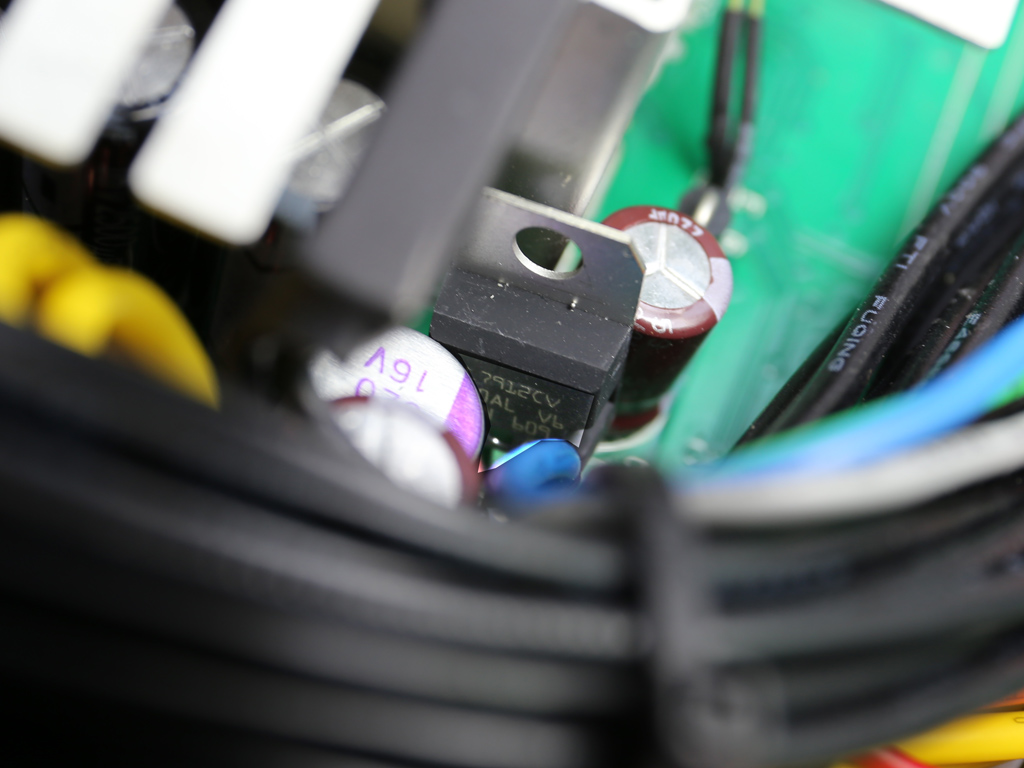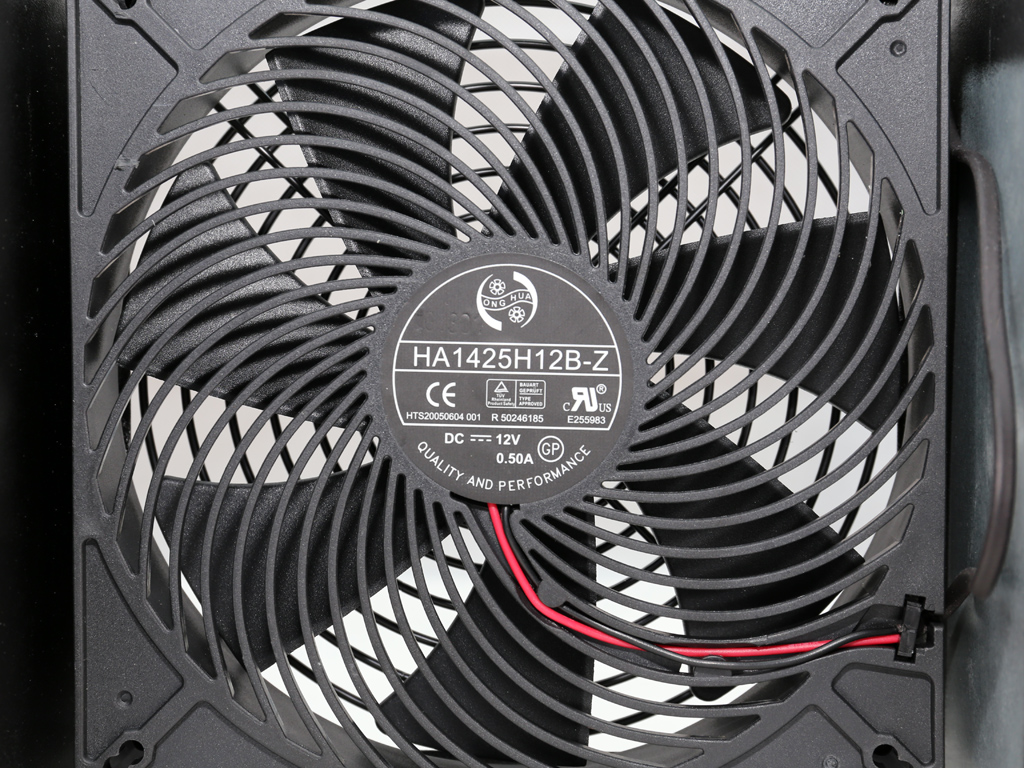SilverStone Strider Platinum ST1200-PT PSU Review
The highest-end member of SilverStone's Strider Platinum line is the ST1200-PT, and we're ready to give it an exhaustive evaluation. It achieves a high power density score thanks to compact dimensions, and there's that 1200W capacity. But is this enough?
Why you can trust Tom's Hardware
A Look Inside And Component Analysis
Parts Description
Before proceeding with this page, we strongly encourage you to a look at our PSUs 101 article, which provides valuable information about PSUs and their operation, allowing you to better understand the components we're about to discuss. Our main tools for disassembling PSUs are a Thermaltronics soldering and rework station, and a Hakko FR-300 desoldering gun.
| General Data | |
|---|---|
| Manufacturer (OEM) | Enhance Electronics |
| Primary Side | |
| Transient Filter | 4x Y caps, 4x X caps, 2x CM chokes, 1x MOV, 1x CM02X |
| Inrush Protection | NTC Thermistor & Relay |
| Bridge Rectifier(s) | 2x |
| APFC MOSFETs | 2x Infineon SPW60R099C6 (650V, 24A @ 100°C, 0.099Ω) |
| APFC Boost Diode | 1x CREE C3D10060G (600V, 10A @ 152°C) |
| Hold-up Cap(s) | 2x Rubycon (420V, 470uF each or 940uF combined, 3000h @ 105°C, MXG) |
| Main Switchers | 4x Infineon IPP60R160C6 (650V, 15A @ 100°C, 0.16Ω) |
| Driver ICs | 2x Silicon Labs Si8230BD |
| APFC Controller | Champion CM6502TX & CM03X |
| Switching Controller | Champion CM6901 |
| Topology | Primary side: Full-Bridge & LLC Resonant Converter Secondary side: Synchronous Rectification & DC-DC converters |
| Secondary Side | |
| +12V MOSFETs | 12x International Rectifier IRFH7004PbF (40V, 164A @ 100°C, 1.4mΩ) |
| 5V & 3.3V | DC-DC Converters: 4x Infineon BSC050NE2LS (25V, 37A @ 100°C, 5mΩ) 2x APW7073 PWM Controllers |
| Filtering Capacitors | Electrolytics: Chemi-Con (105°C, KY, KZH, KZE, LXZ, KMA), Rubycon (105°C, 3-6,000h, YXG), Unicon (105°C) Polymers: Unicon (UPT) |
| Supervisor IC | SITI PS223 (OVP, UVP, OCP, SCP, OTP) |
| Fan Model | Hong Hua HA1425H12B-Z (140mm, 12V, 0.50A, Dual Ball-Bearing) |
| 5VSB Circuit | |
| Rectifier | 1x PFR10V45CT |
| Standby PWM Controller | STR-A6069H |
| -12V Circuit | |
| Rectifier | 1x L7912CV (T0-220, 1.5A, -12V) |
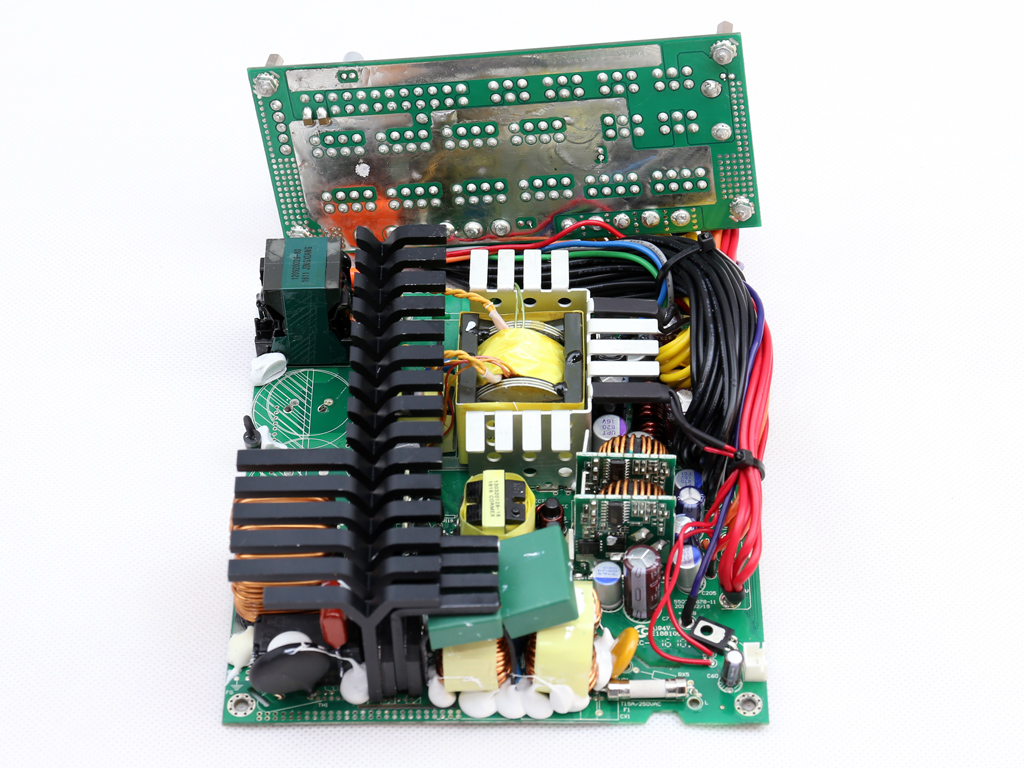
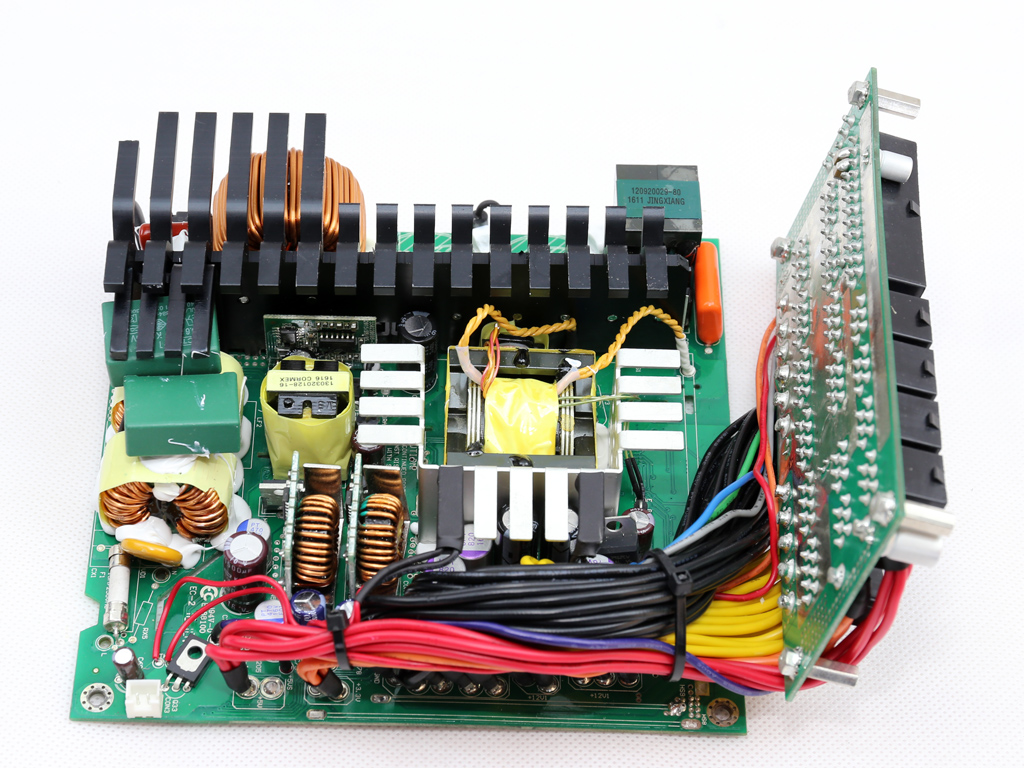
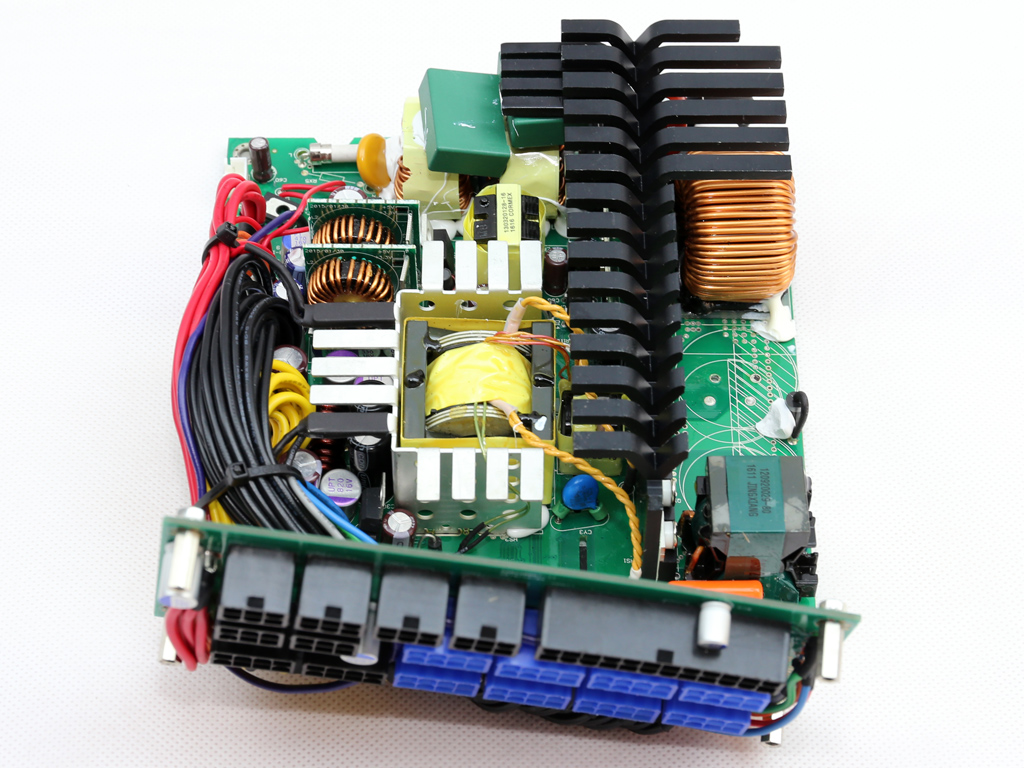
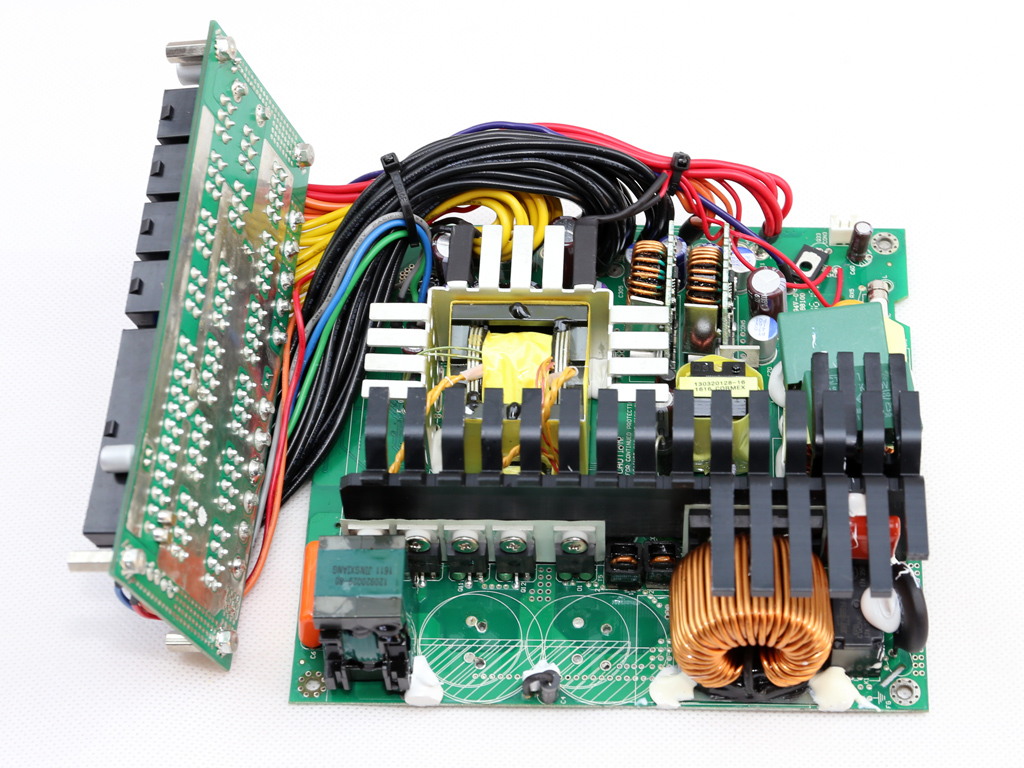
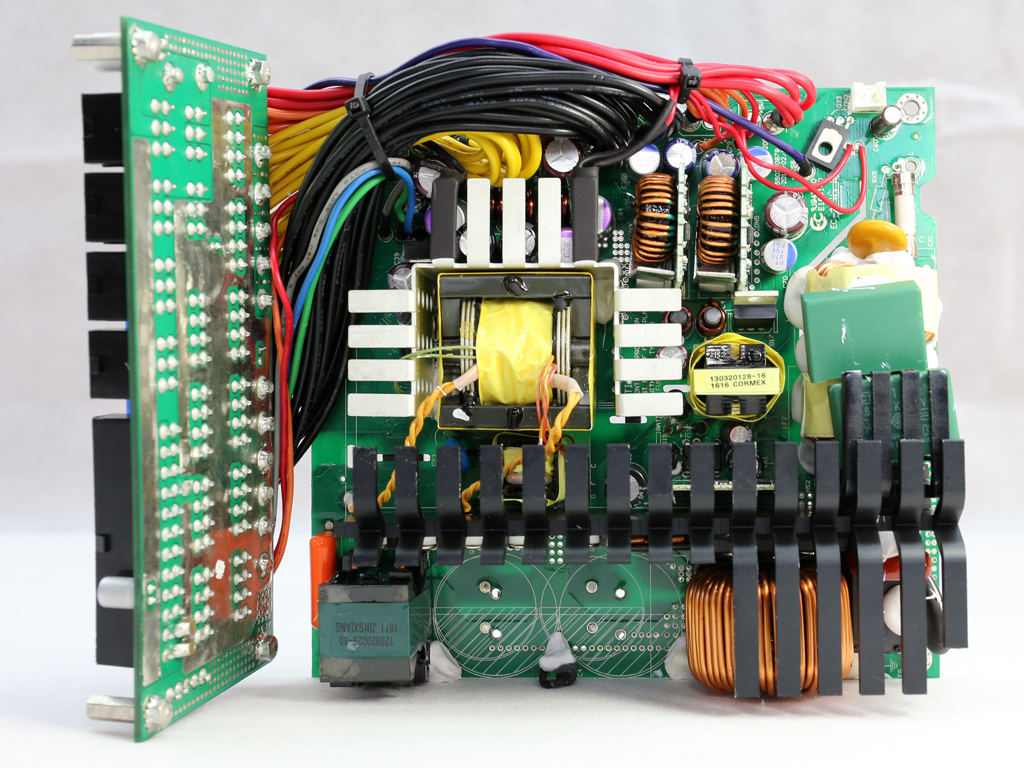
This platform is provided by Enhance Electronics, an OEM with which SilverStone keeps close ties. Enhance has pretty good low- and mid-capacity platforms, but its high-capacity ones cannot compete with offerings from other OEMs like Seasonic and Super Flower. They still deliver reliable operation though, since Enhance uses quality parts in its top-end implementations, and its production lines have quite good quality control, at least in our experience.
The ST1200-PT shares the same platform with Gigabyte's Xtreme Gaming 1200W, which we reviewed several months ago. The design is clean in general, and the main transformer is pretty small for a 1.2kW unit. The primary heat sink is long, and most of its fins are short. This will allow us to remove the bulk caps easily. A full-bridge topology is used on the primary side, along with an LLC resonant converter, while on the secondary side a couple of voltage regulator modules generate the minor rails.
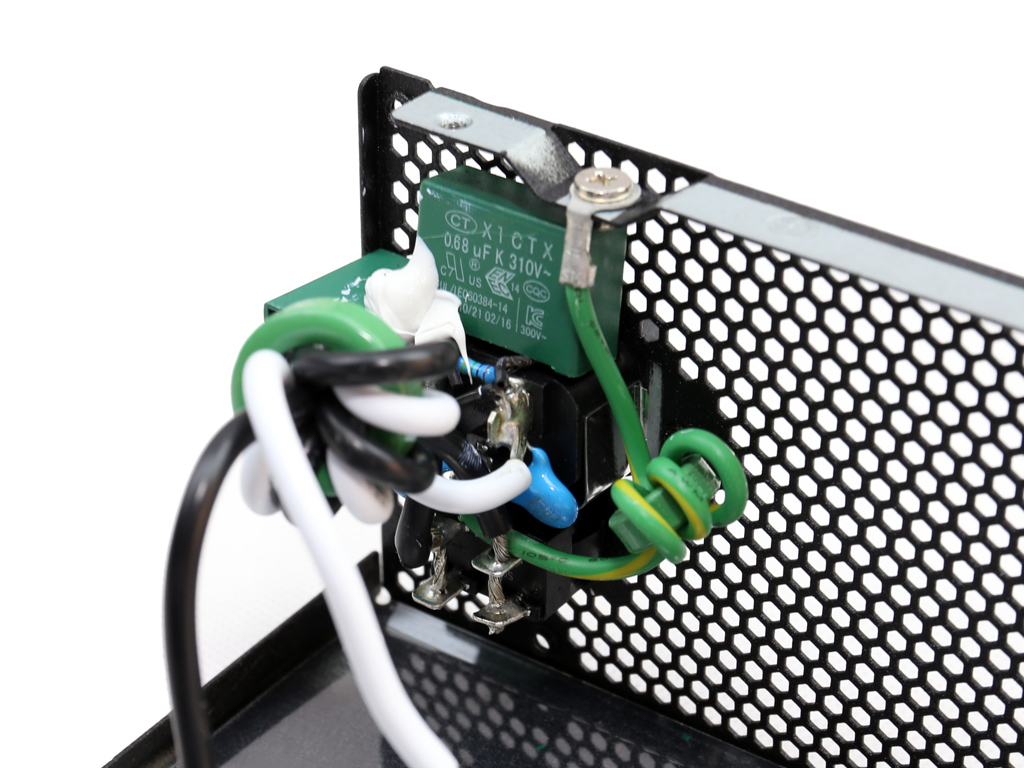
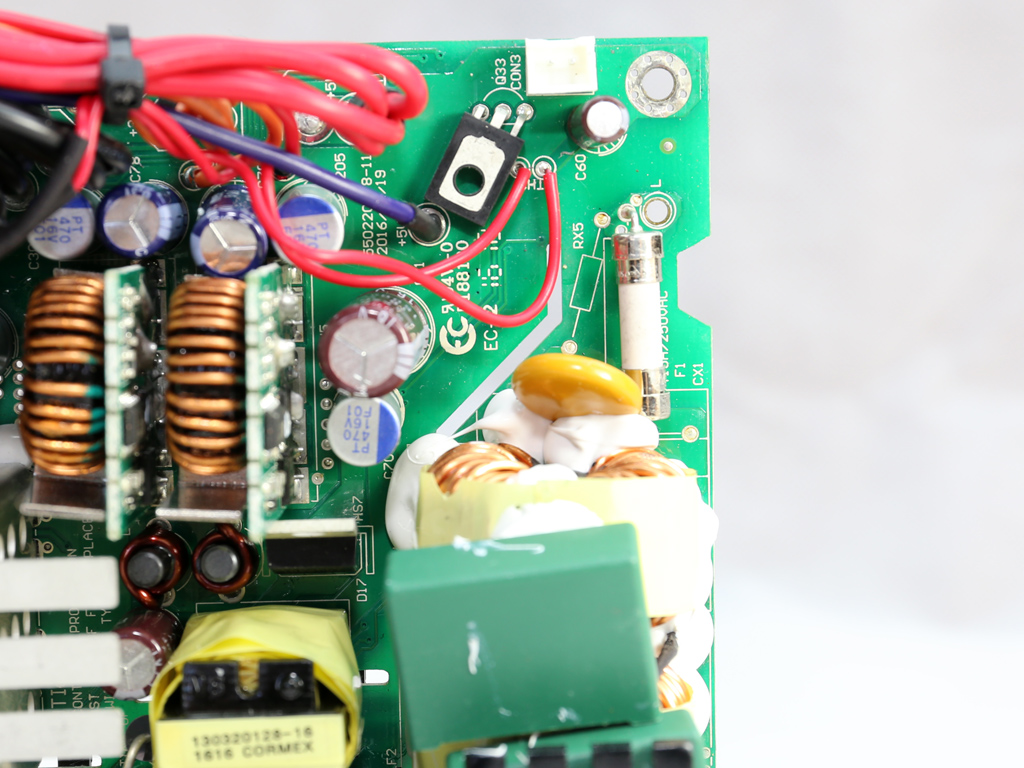
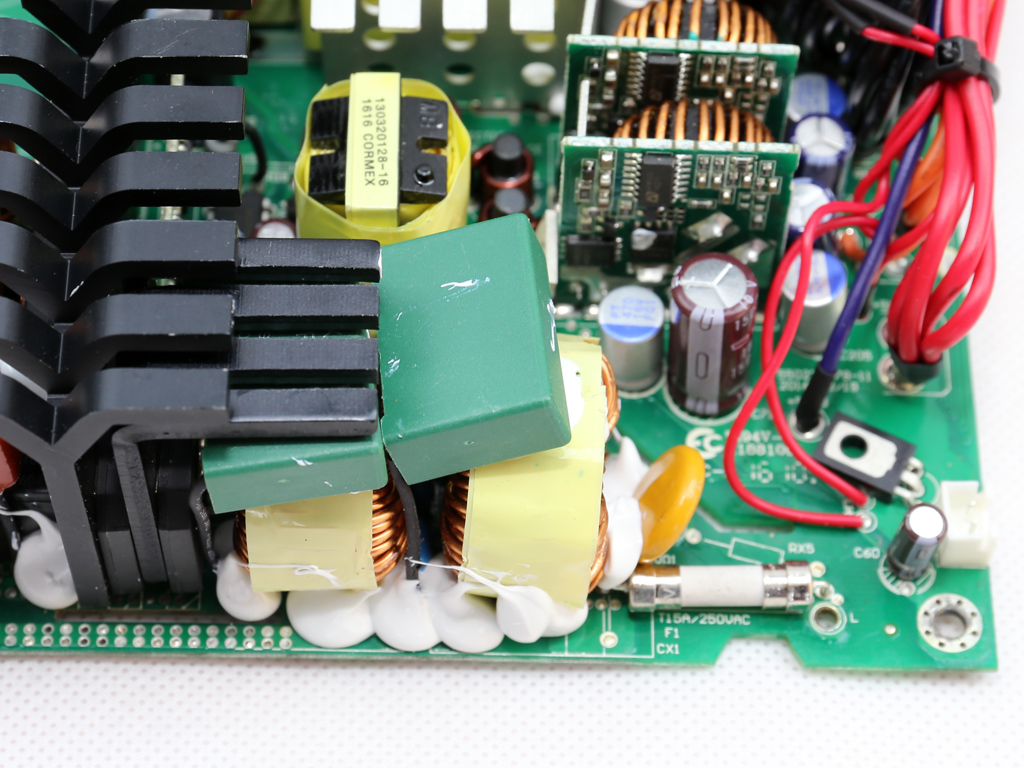
As usual, the first part of the EMI filter starts at the AC socket with two X and two Y caps. It continues on the mainboard with the same number of X and Y caps, plus two CM chokes and an MOV. There is a CM02X installed on the solder side of the main PCB, which blocks current through an X cap's bleeding resistor when AC voltage is connected.
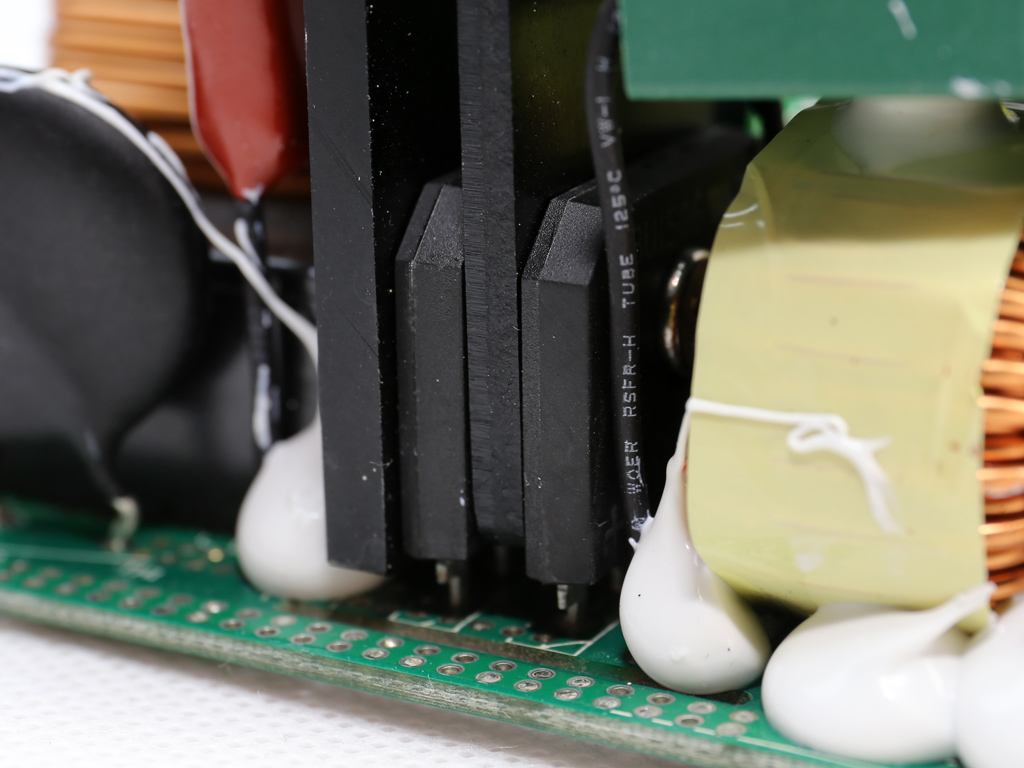
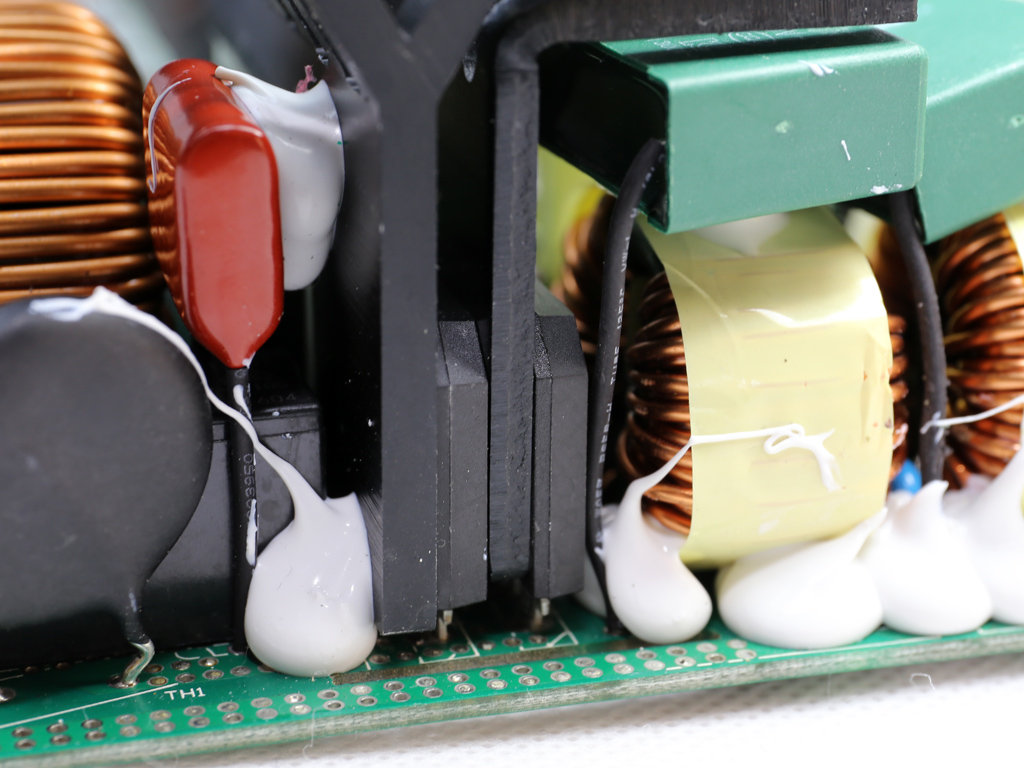
The pair of bridge rectifiers is installed on a dedicated heat sink. We cannot make out the model number of those rectifiers without completely removing them, so we'll leave them alone.
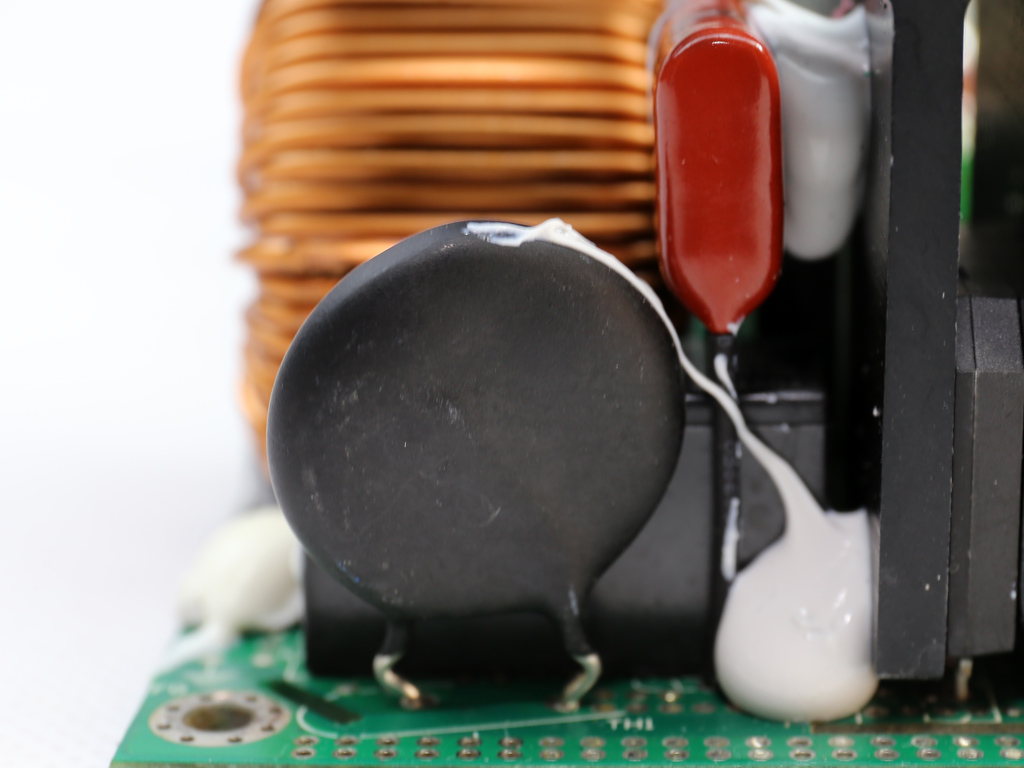
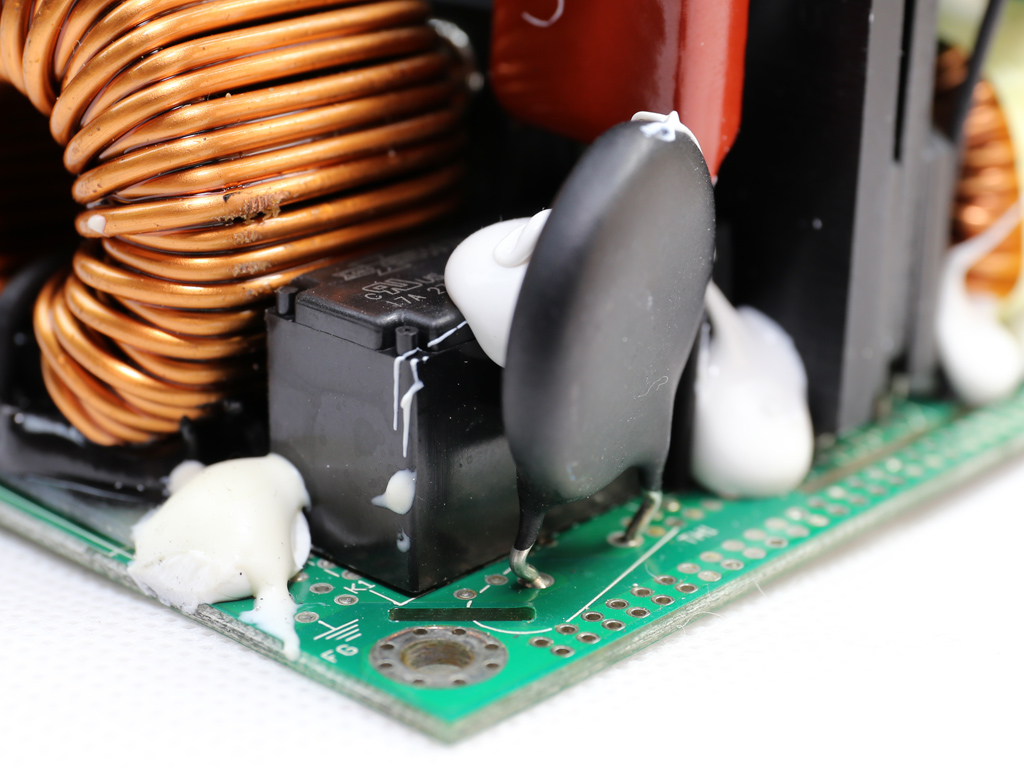
A large NTC thermistor is responsible for this unit's low inrush currents. It is backed by a bypass relay that facilitates quick cool-down.
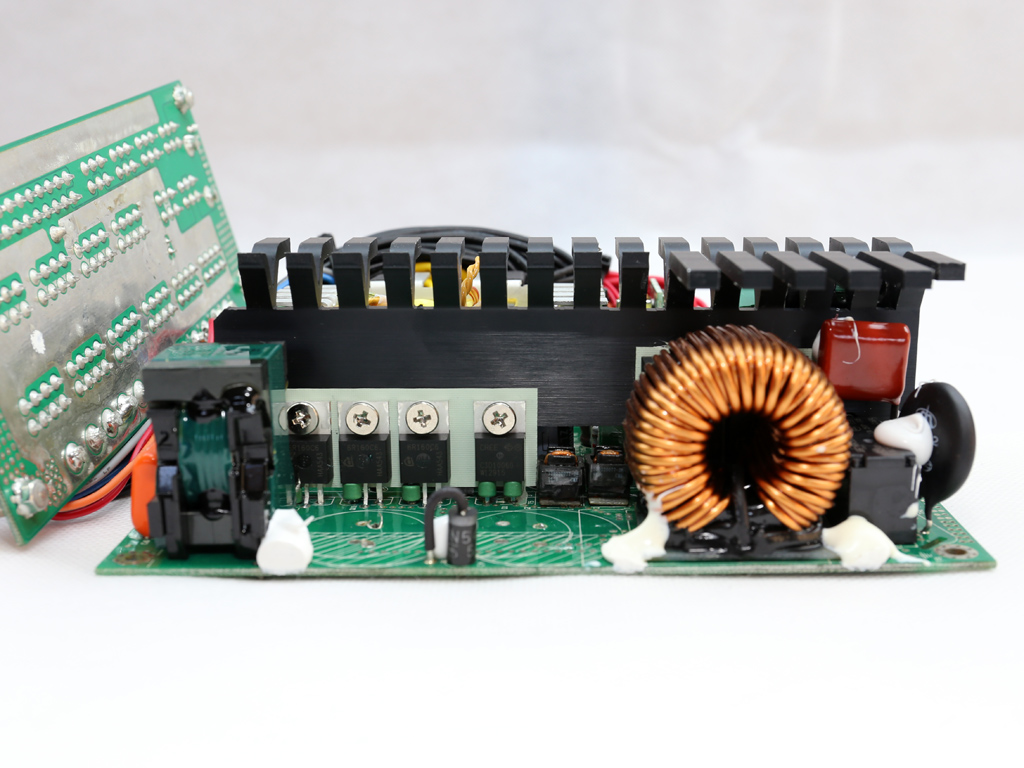
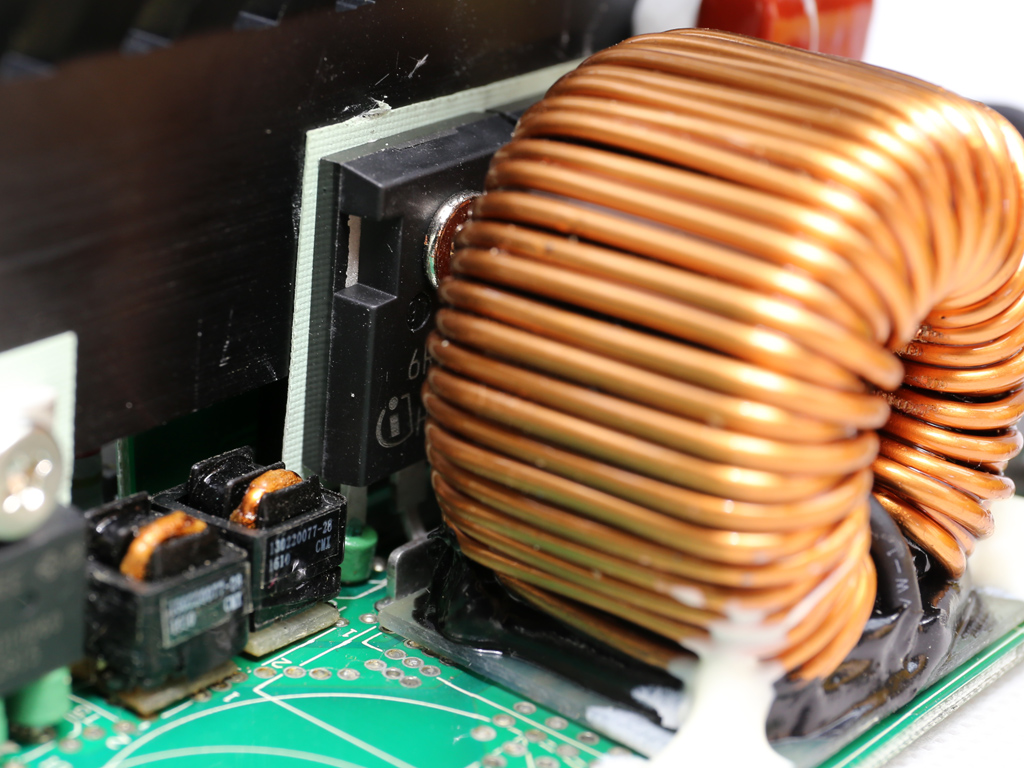
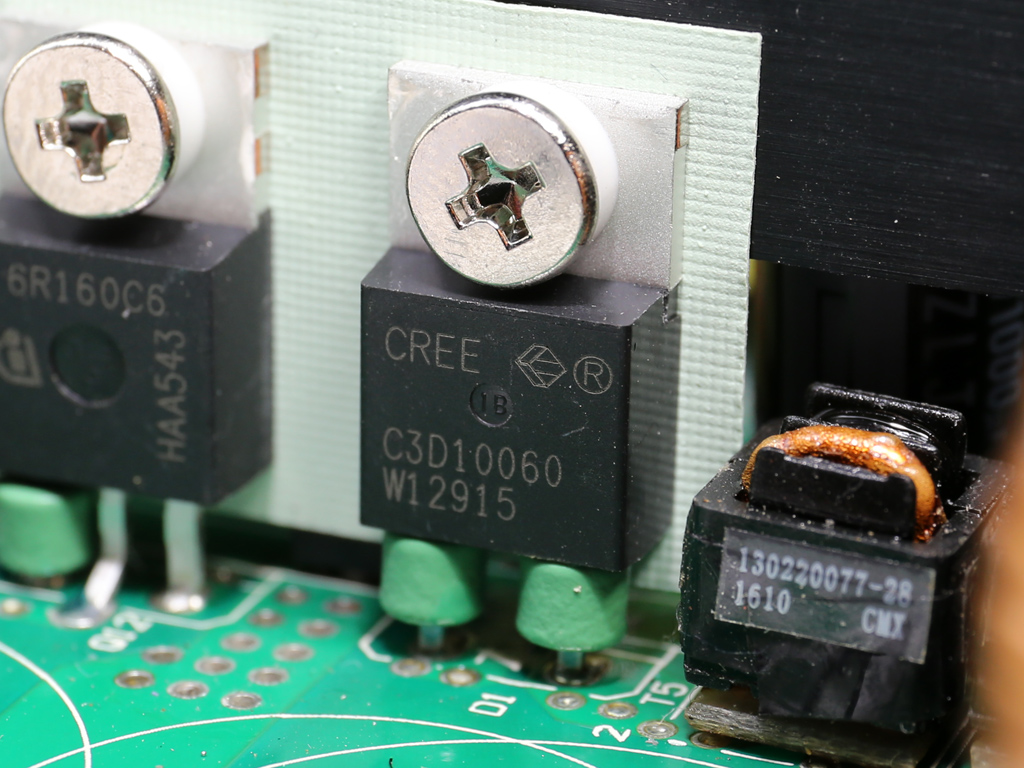
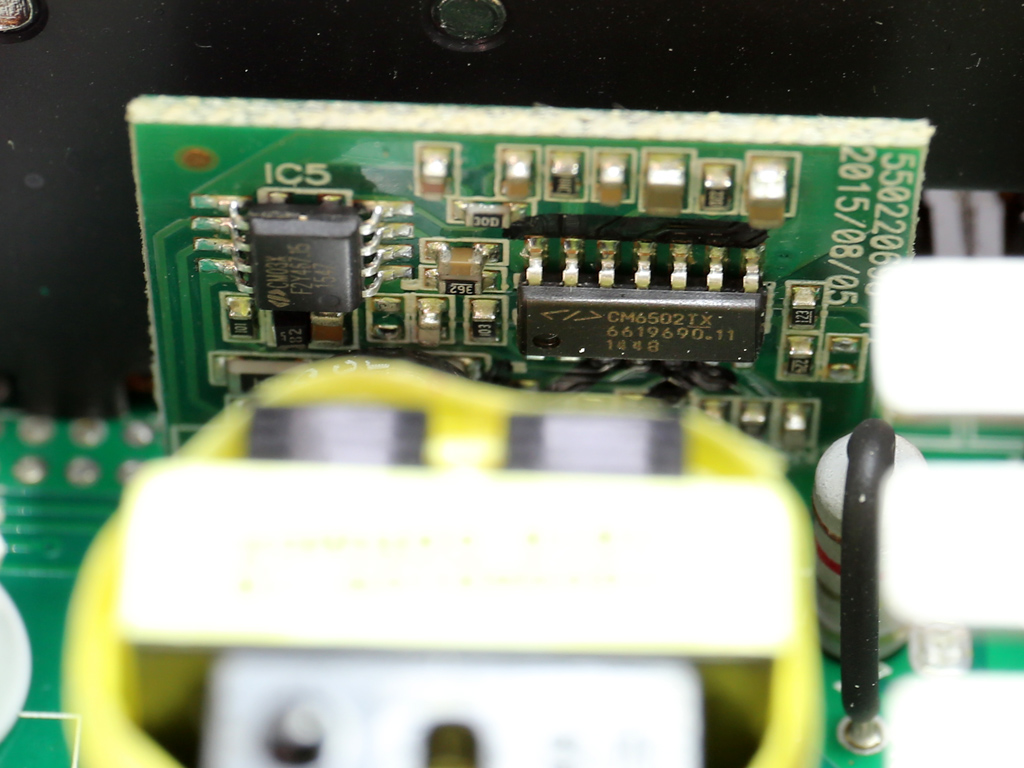
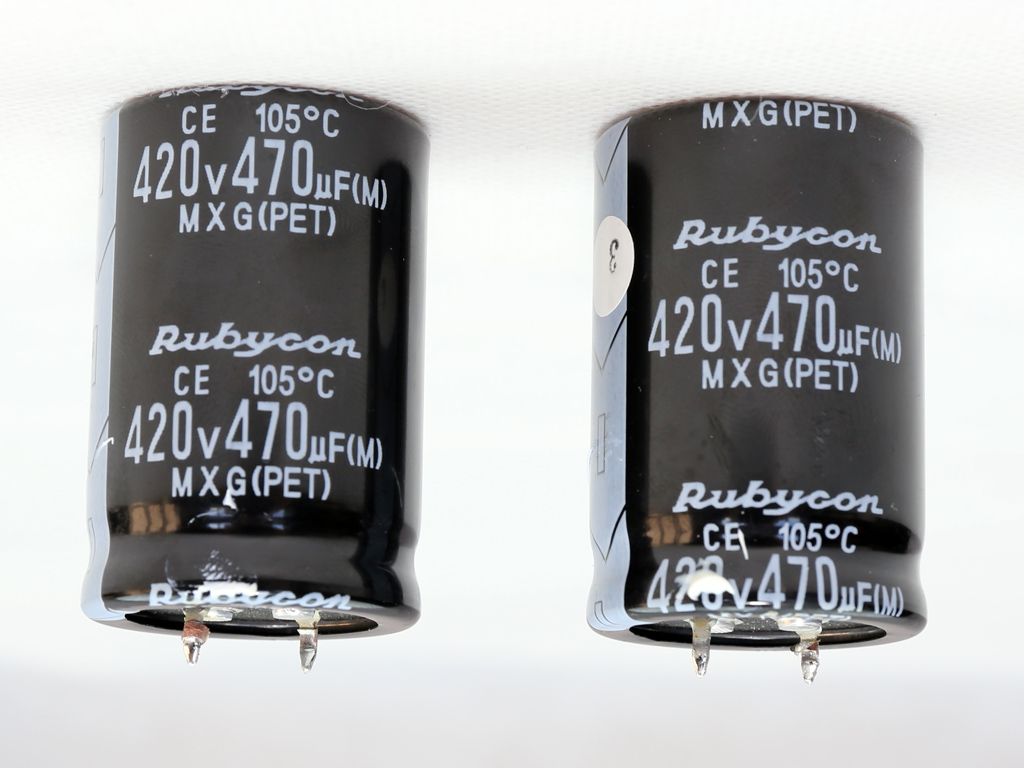
The APFC converter uses two Infineon SPW60R099C6 FETs, along with a single CREE C3D10060G boost diode. The pair of bulk caps is made by Rubycon (420V, 470uF each, 2000h @ 105°C, MXG) and their combined capacity of 940uF is low. Gigabyte's XP1200M uses two Rubycon MXH caps with 1120uF combined capacity, and still it wasn't able to achieve a greater-than 17ms hold-up time. Lastly, the APFC controller is a Champion CM6502, and it's supported by a CM03X Green PFC controller.
Get Tom's Hardware's best news and in-depth reviews, straight to your inbox.
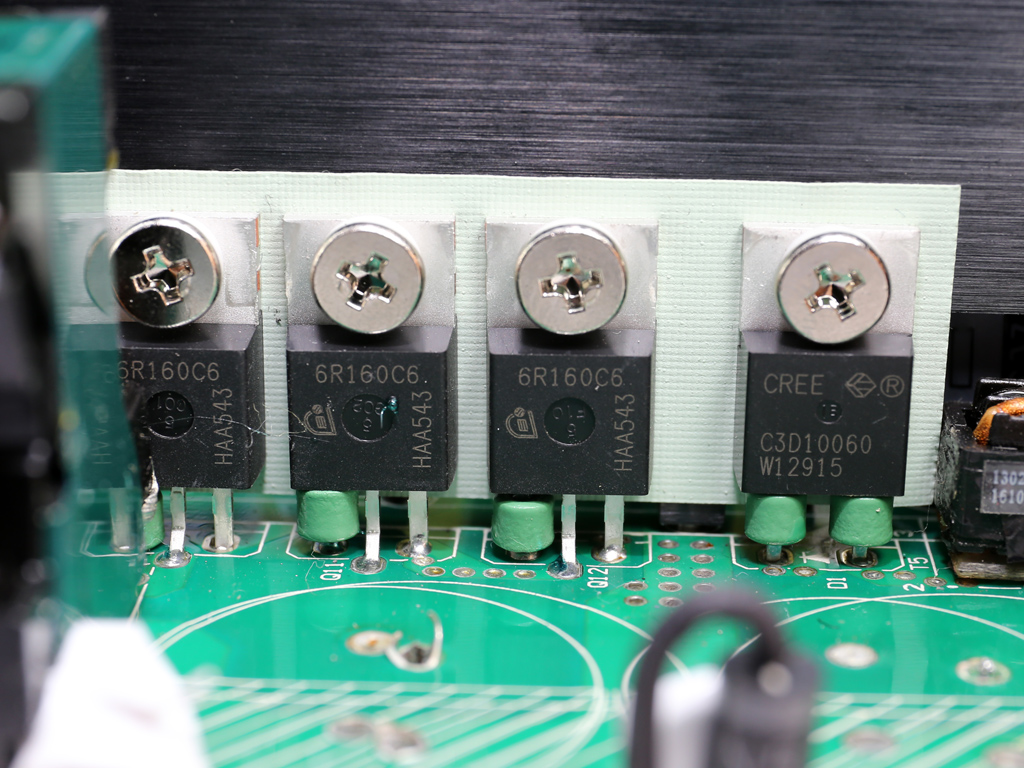
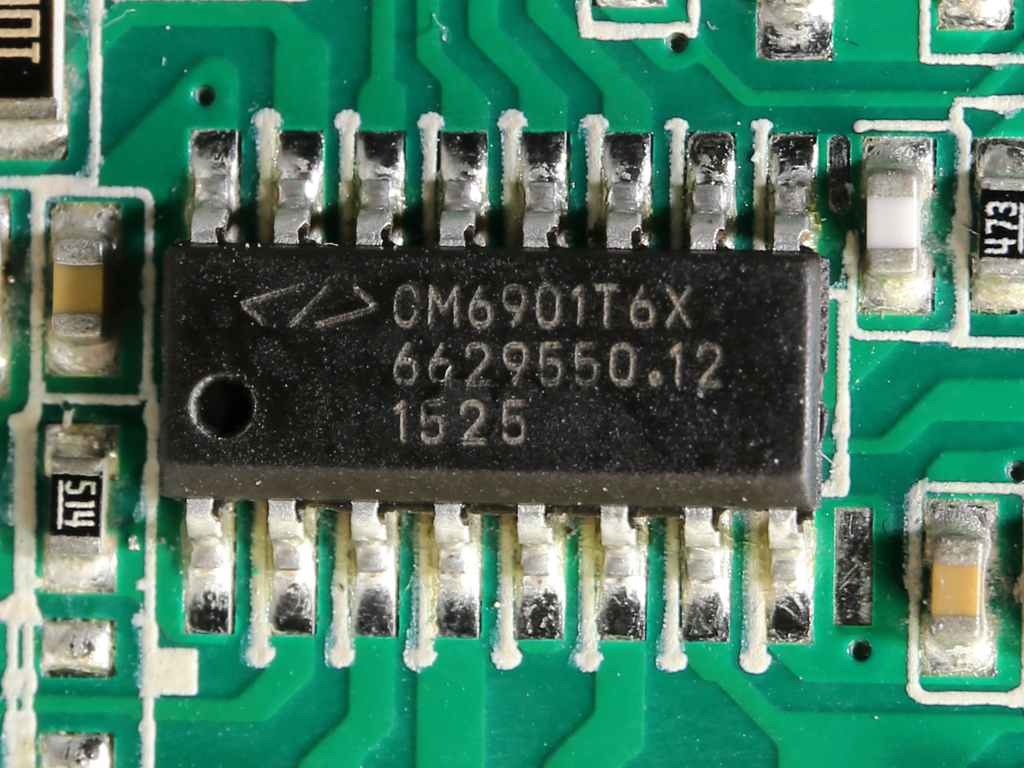
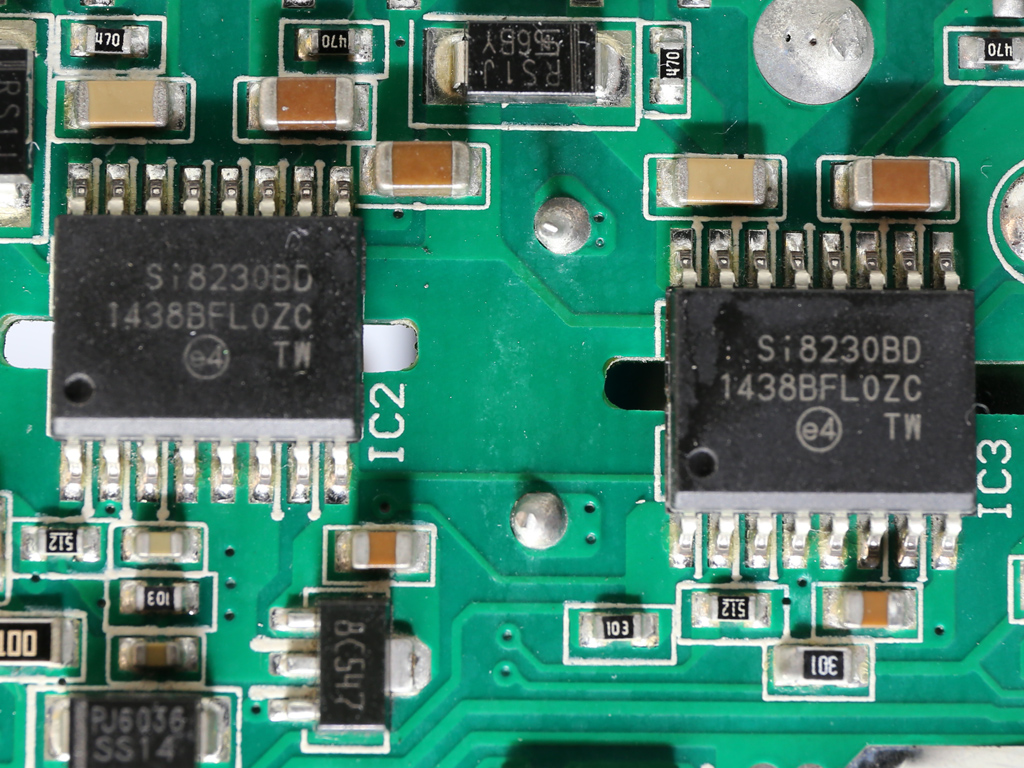
The main switchers are four Infineon IPP60R160C6 FETs, installed in a full-bridge topology. They are supported by an LLC resonant converter for lossless (or at least almost lossless) switching. The LLC resonant controller is a Champion CM6901 IC, and the driver ICs that handle the main FETs are a couple of Silicon Labs Si8230BD ICs. Each one can handle a couple of the primary FETs.
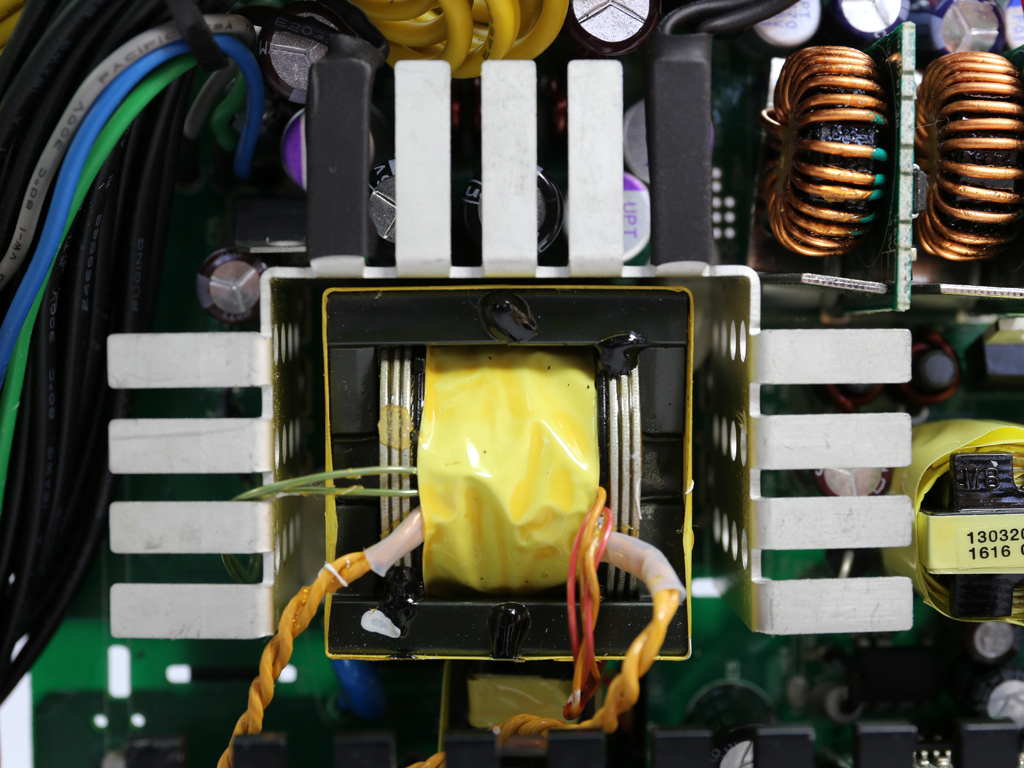
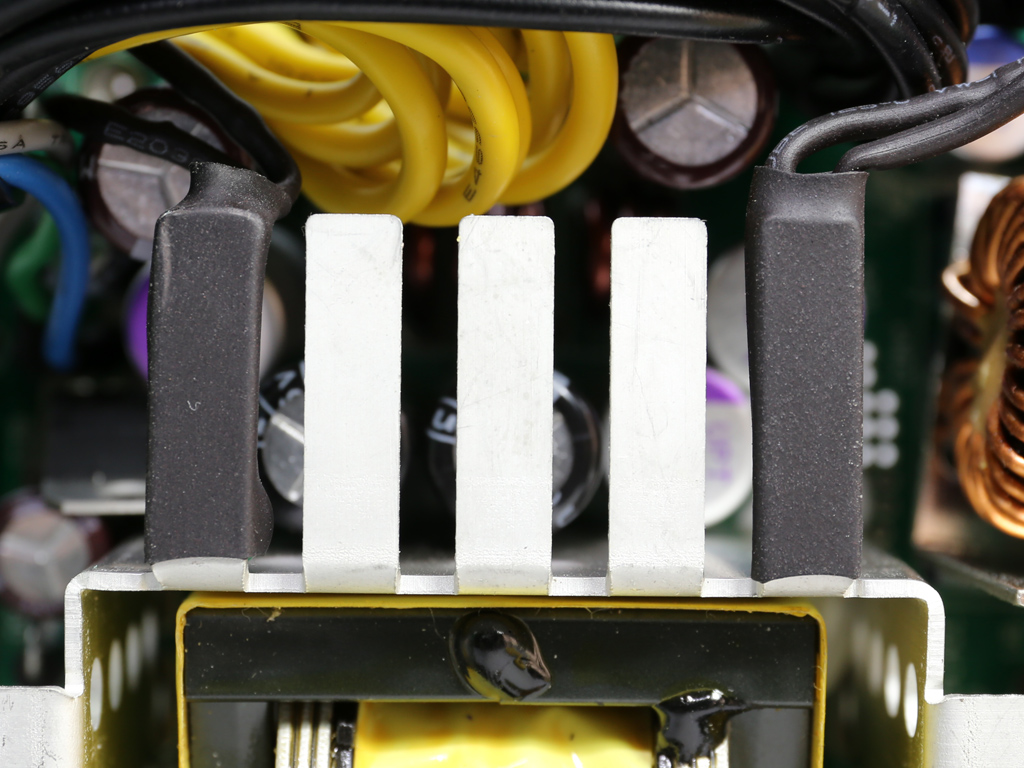
The small main transformer uses a special design in order to cope with this unit's increased capacity. It is covered by three heat sinks that don't have any FETs bolted on them. They do play a role in cooling though, since they help dissipate thermal energy from the +12V FETs installed underneath them on the board's solder side. Two thermistors are attached to the heat sinks, providing data to the fan control and over-temperature protection circuits.
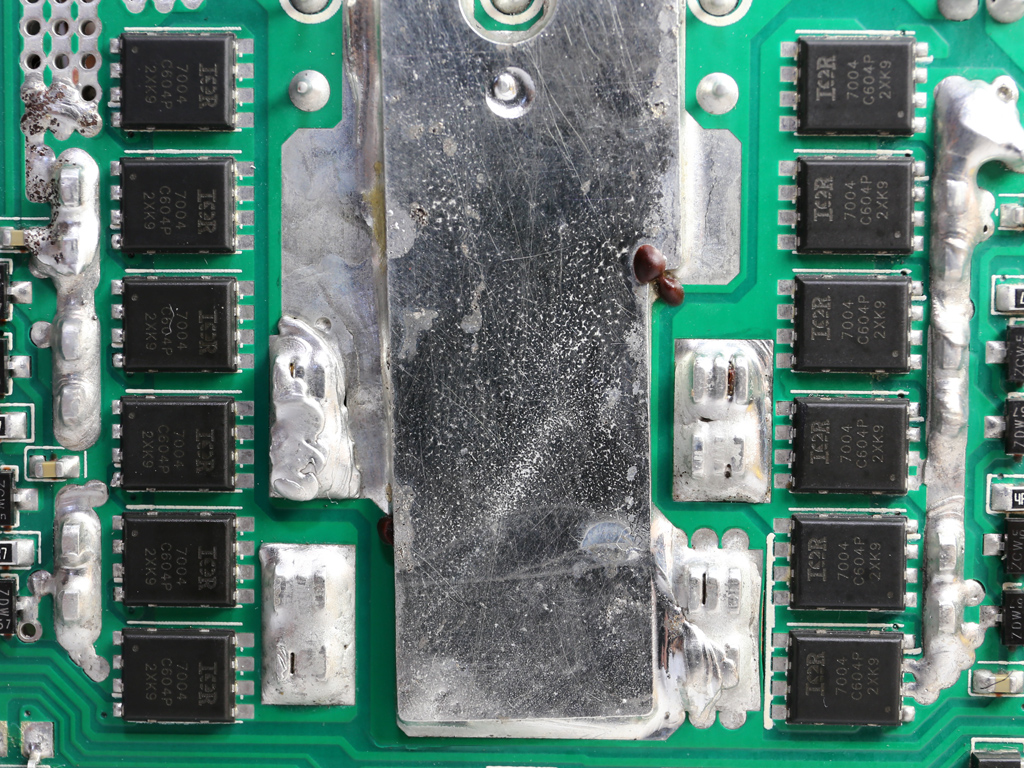
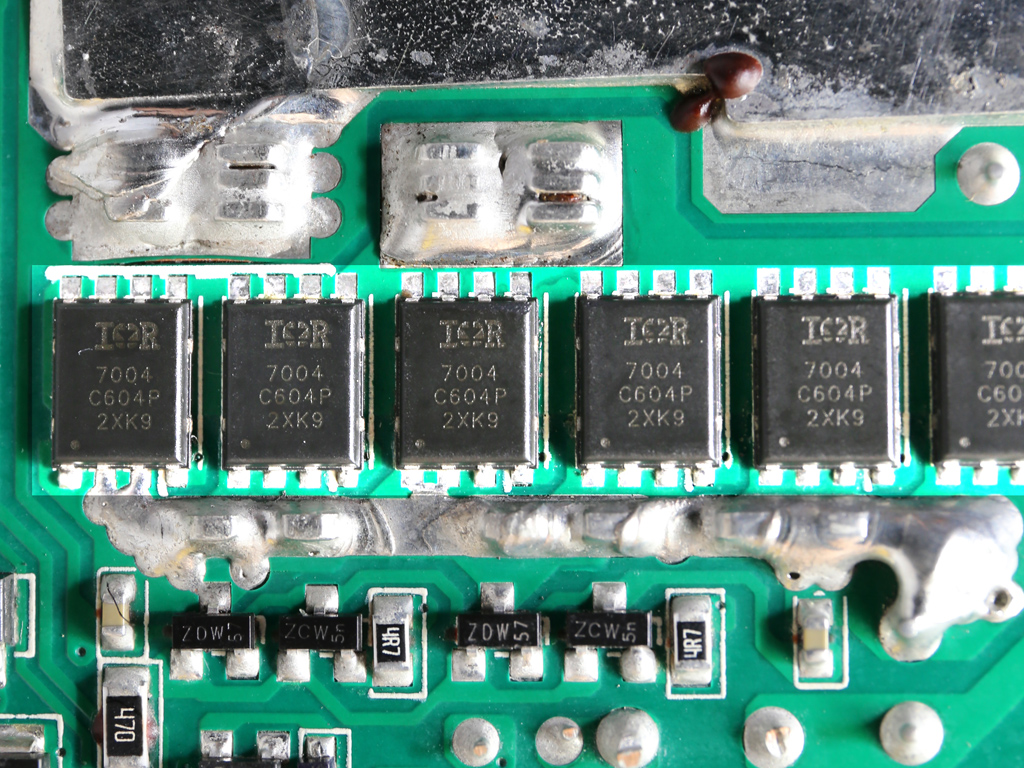
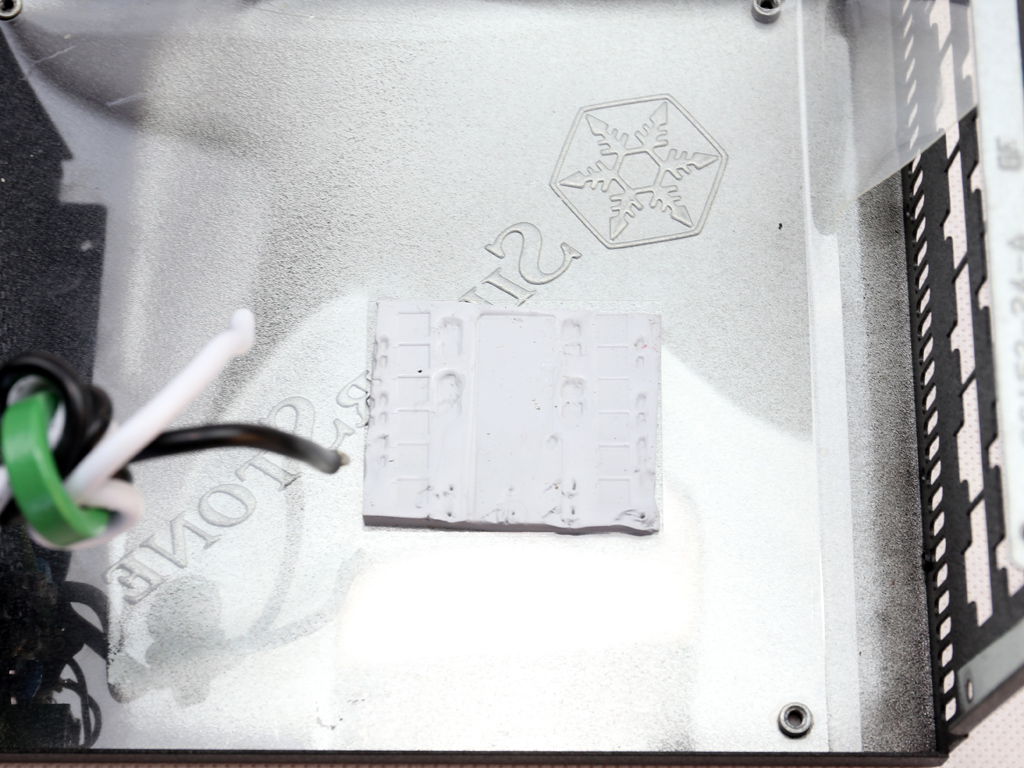
Twelve International Rectifier IRFH7004PbF FETs generate the +12V rail. They rely heavily on the PSU's chassis for cooling.
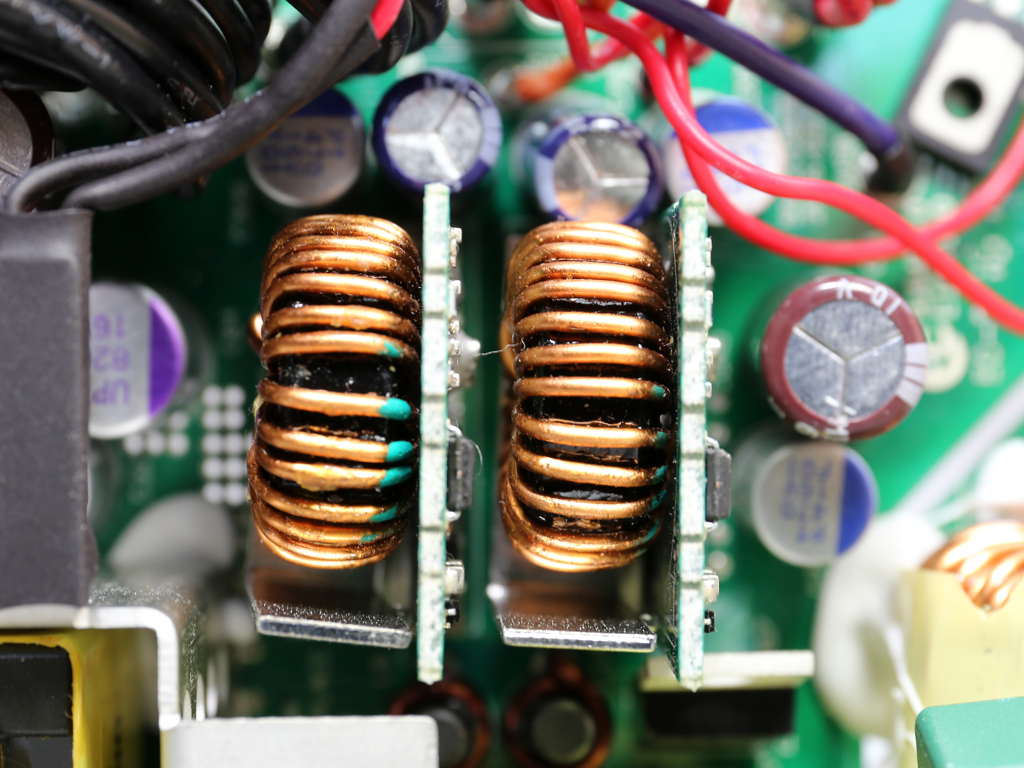
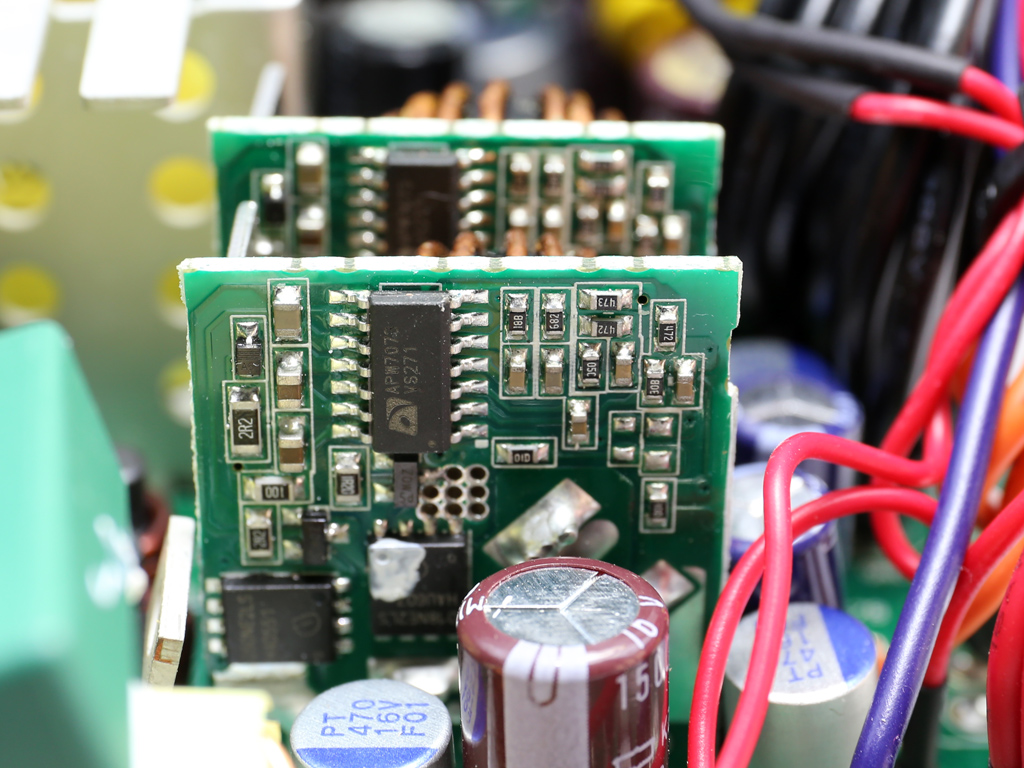
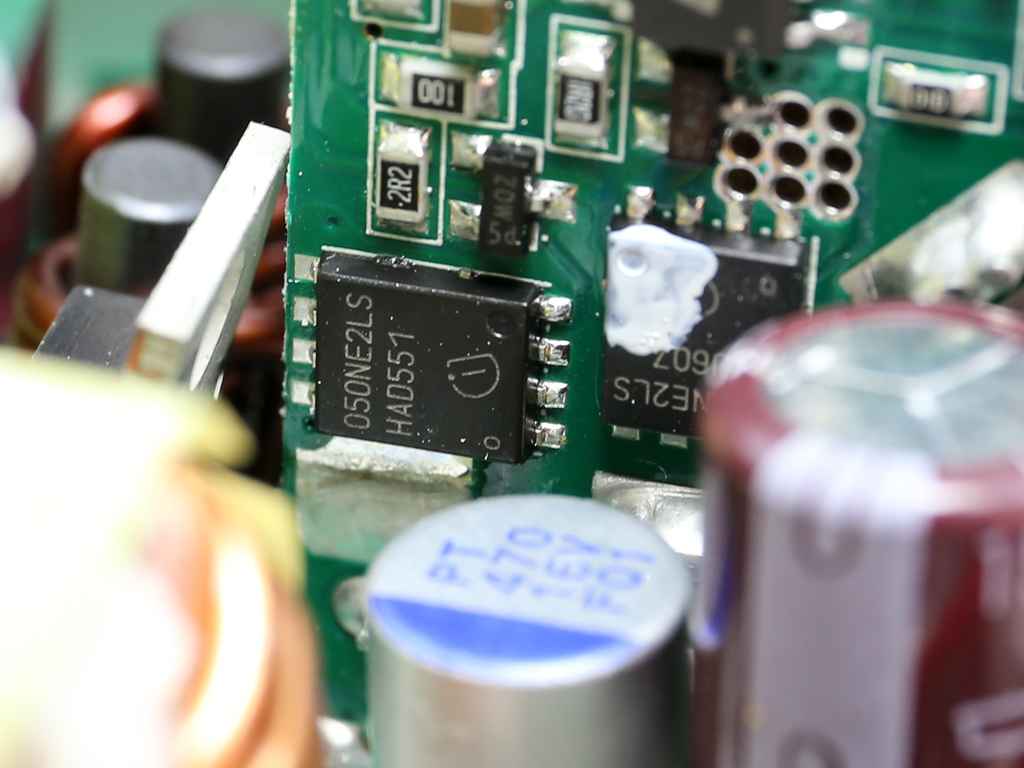
A couple of DC-DC converters generate the minor rails. Each converter uses a couple of Infineon BSC050NE2LS FETs, along with a single ANPEC APW7073 controller.
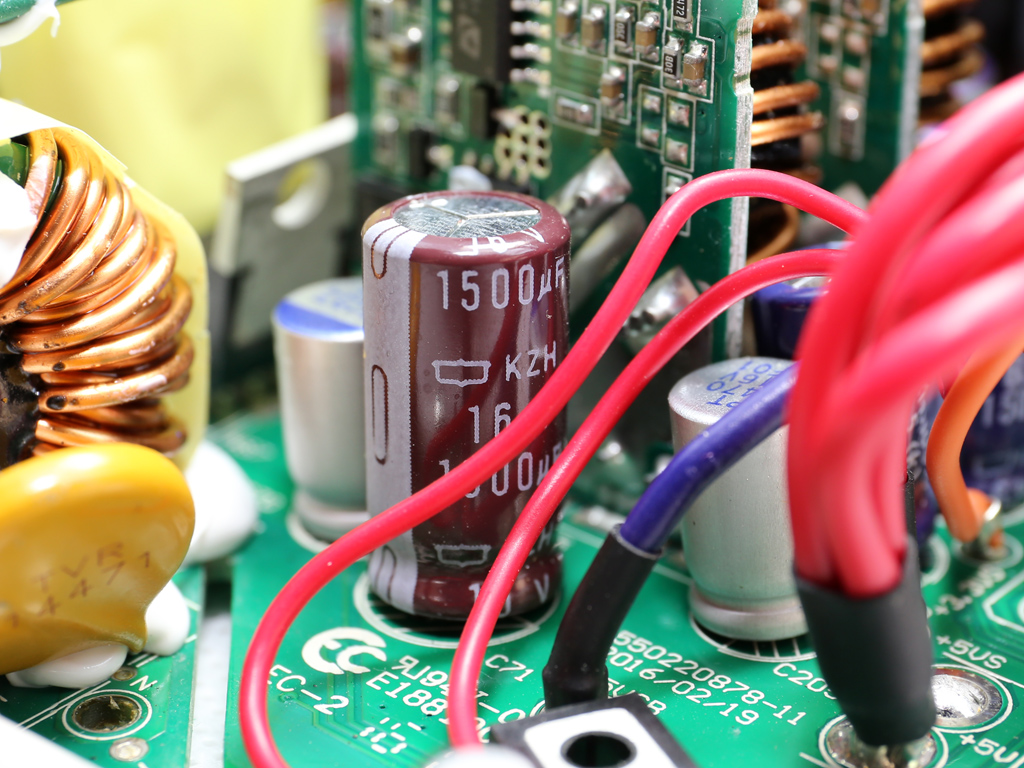
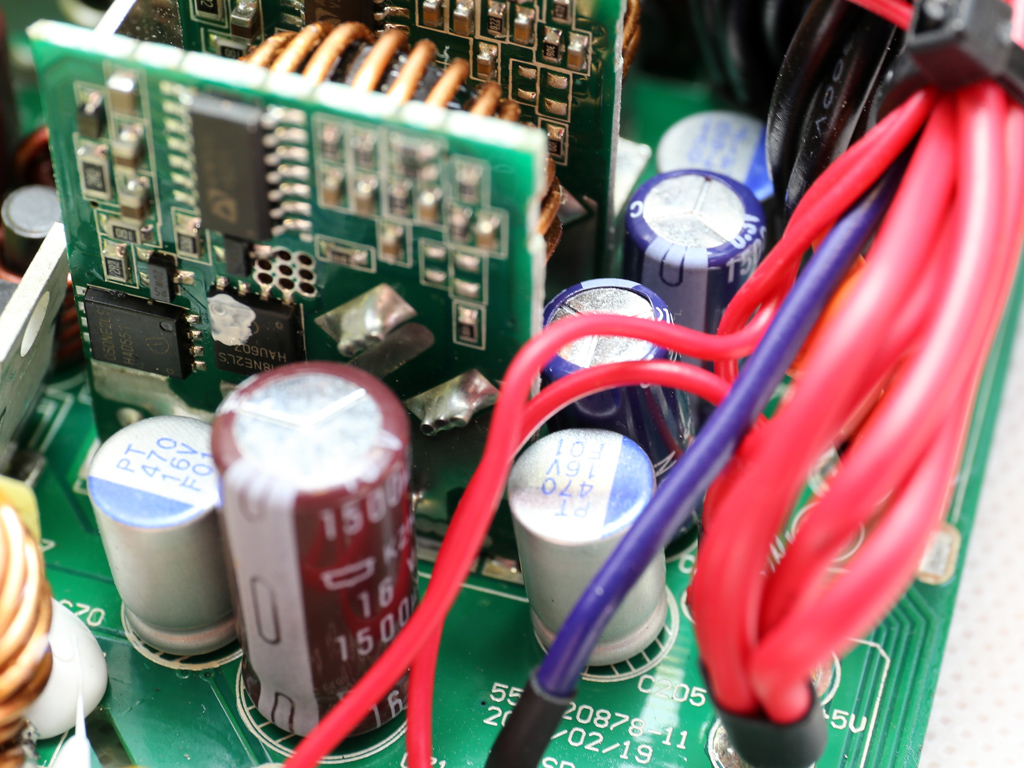
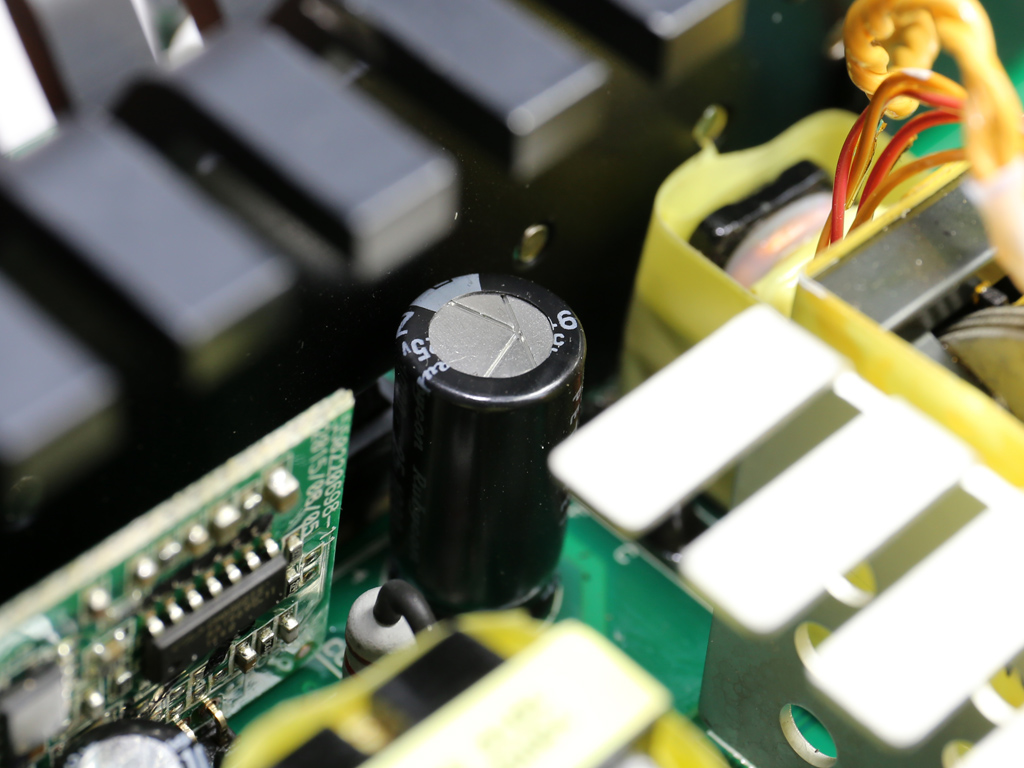
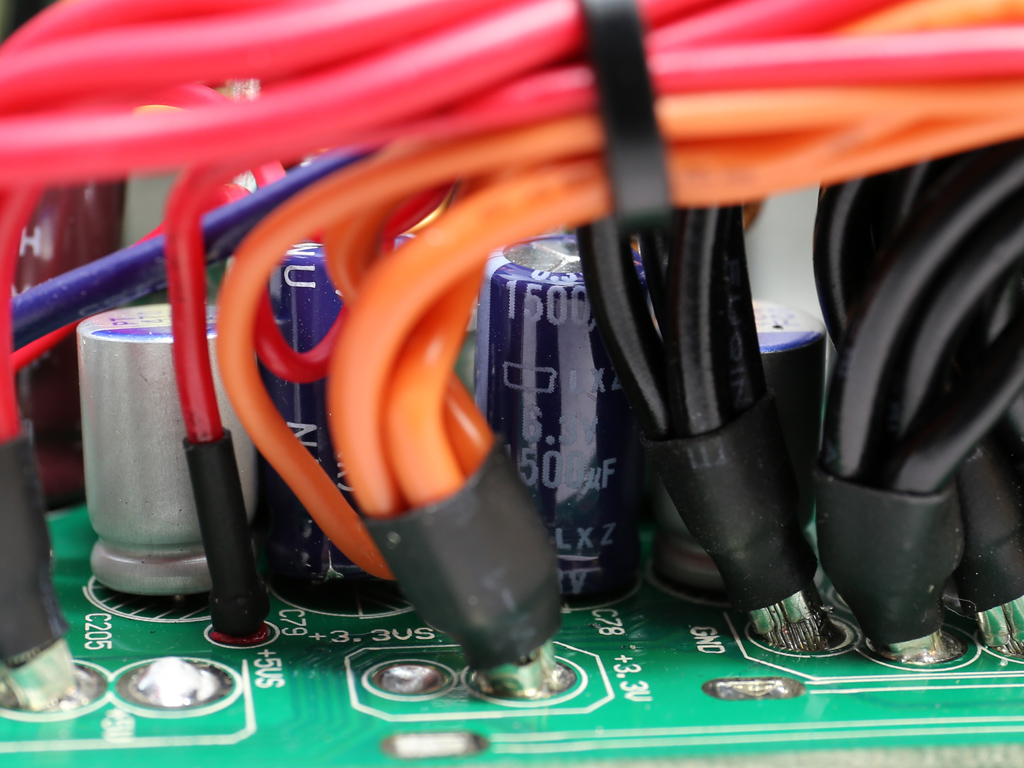
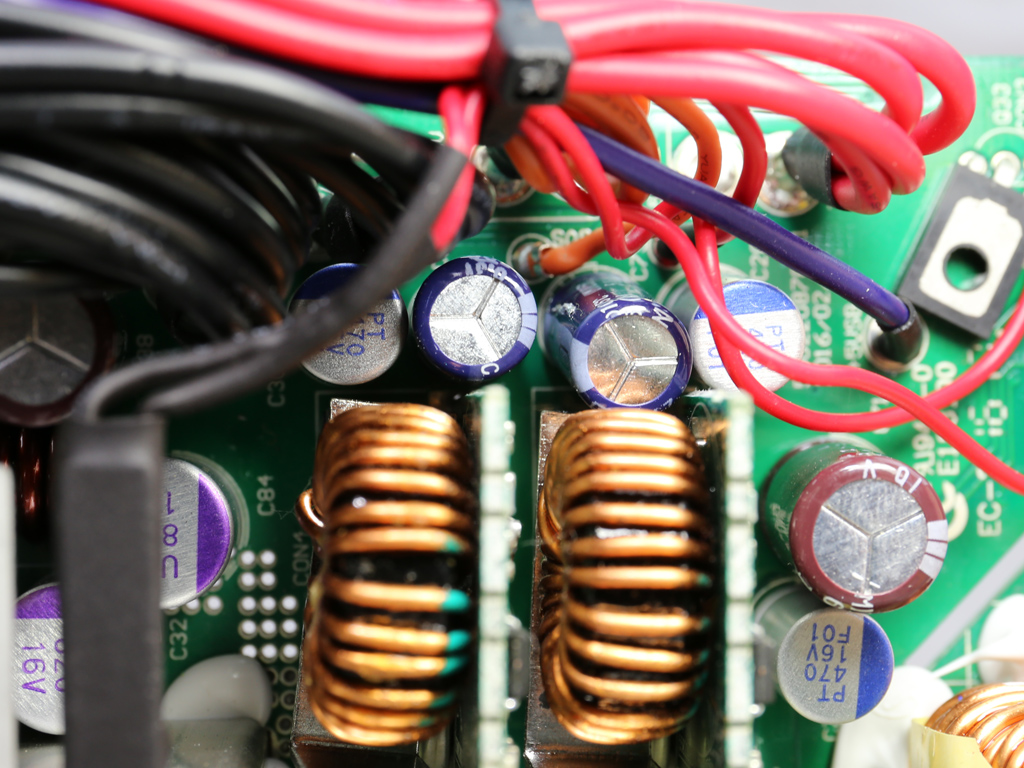
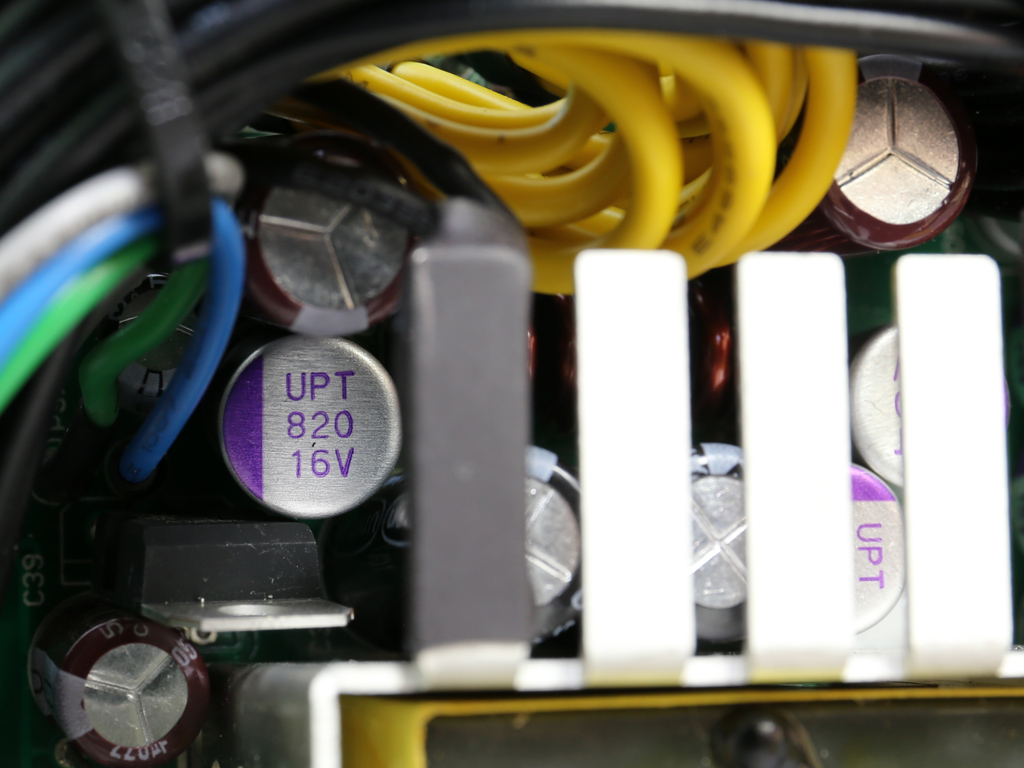
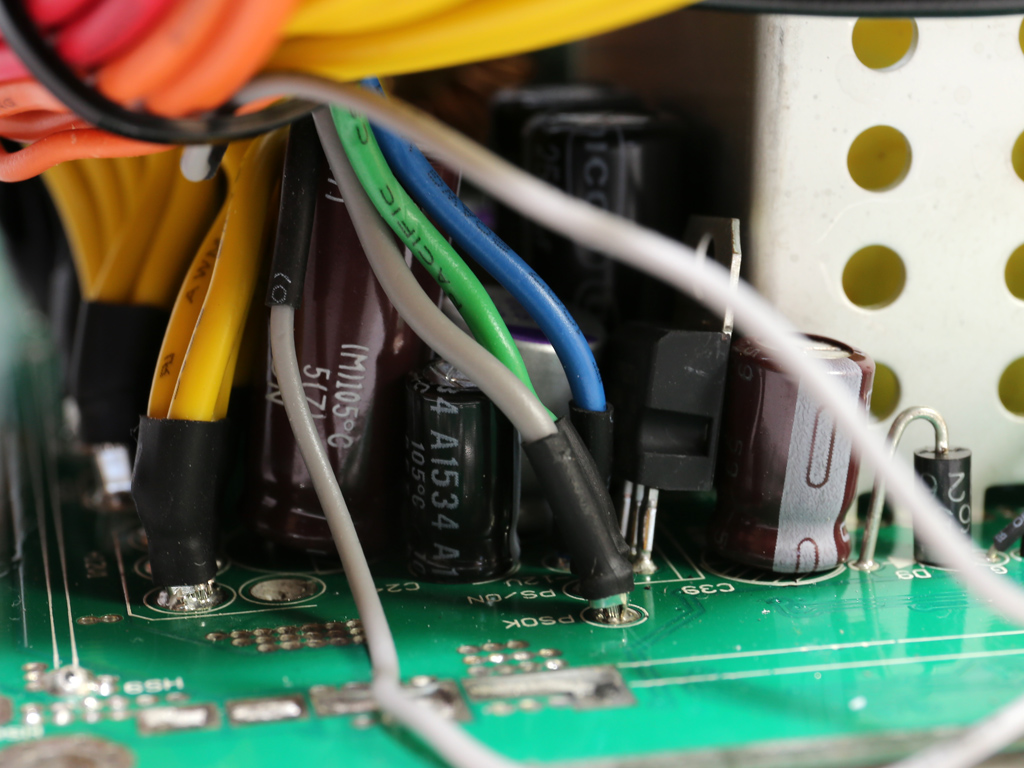
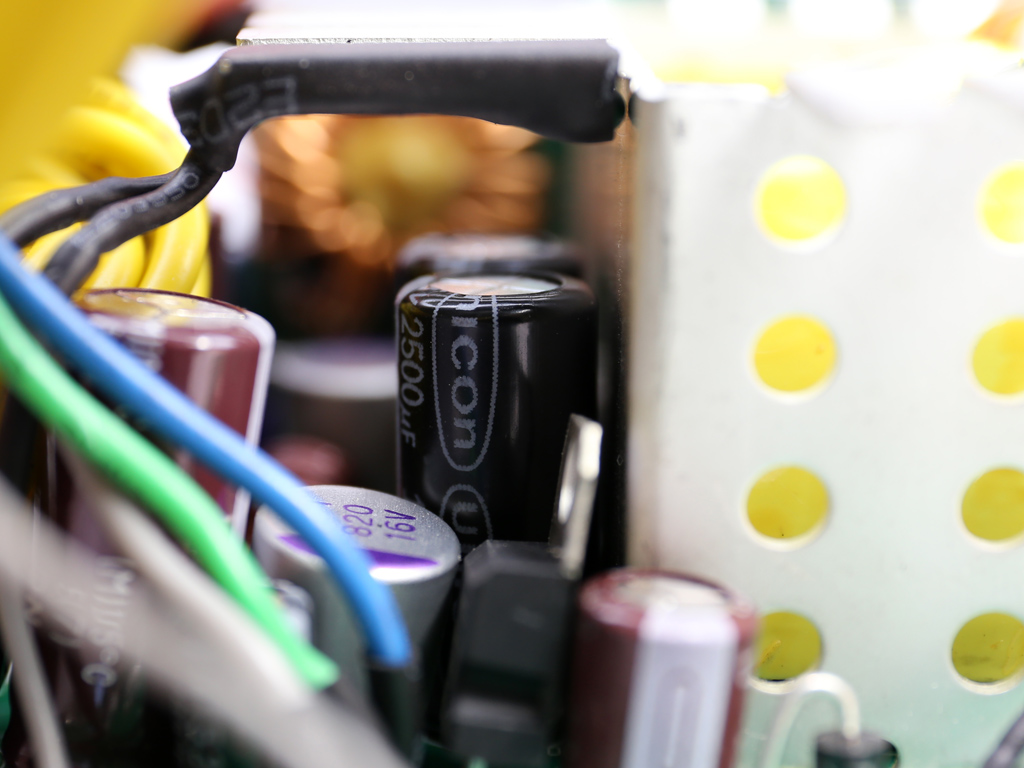
The electrolytic caps that filter the rails are provided by Nippon and United Chemi-Con mostly. We also find some Unicon caps and a pair of Rubycons in the 5VSB circuit. Unicon is a Japanese company with factories in Taiwan and China, and its product are of good quality in general. Besides electrolytic caps, several polymer ones are also used, sourced from Unicon.
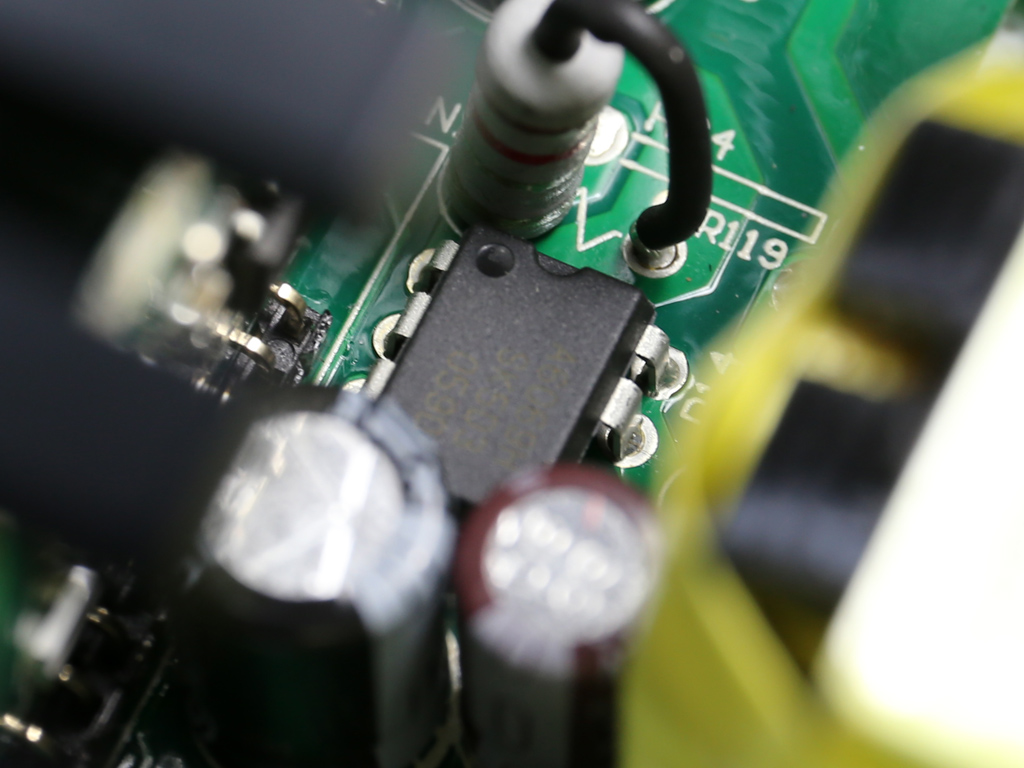
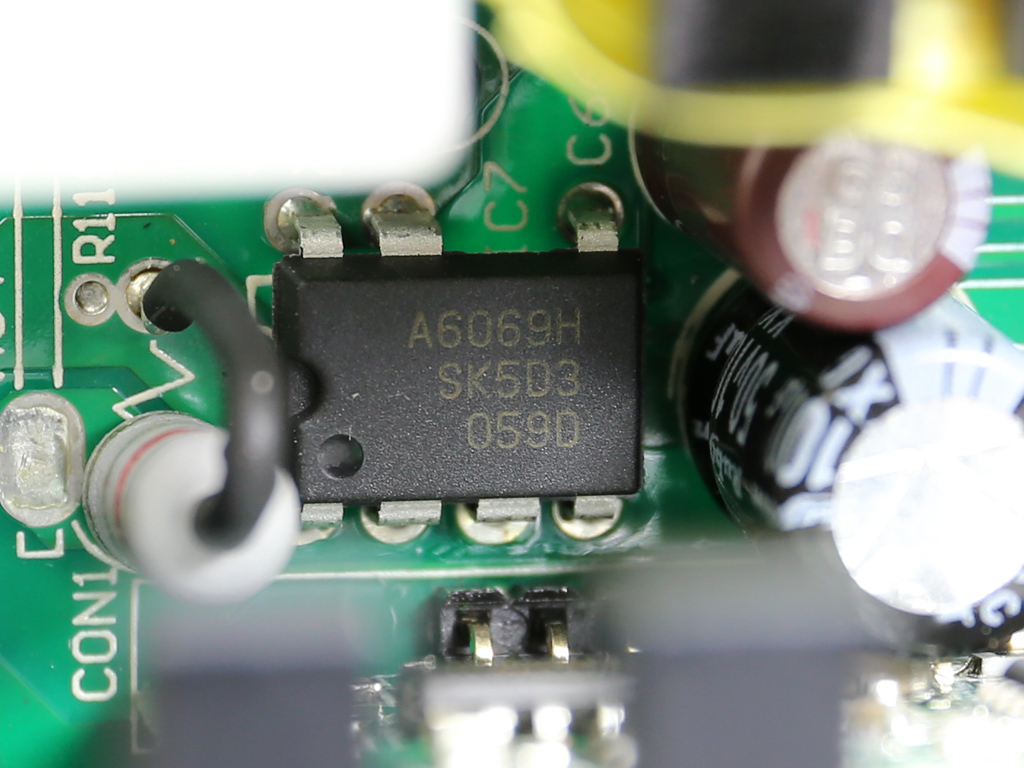
The standby PWM controller is a Sanken STR-A6069H IC, and the SBR that rectifies the 5VSB rail is a PFR10V45CT.
The rectifier that handles the -12V rail is a L7912CV, hidden below the power transfer cables on the secondary side.
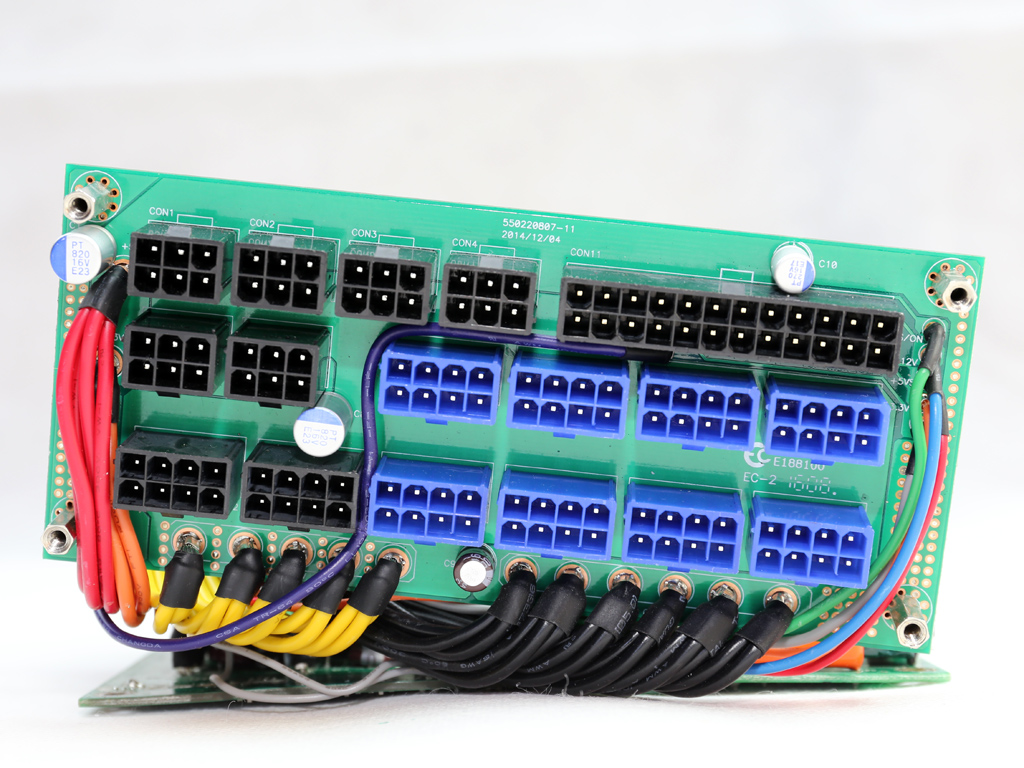
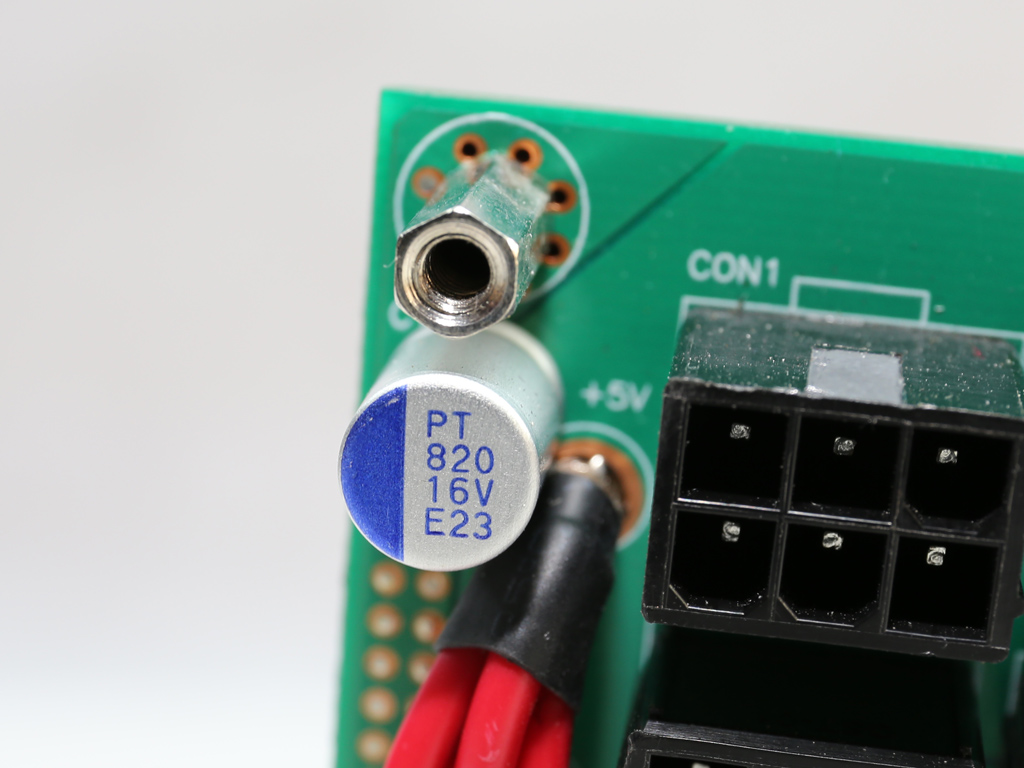
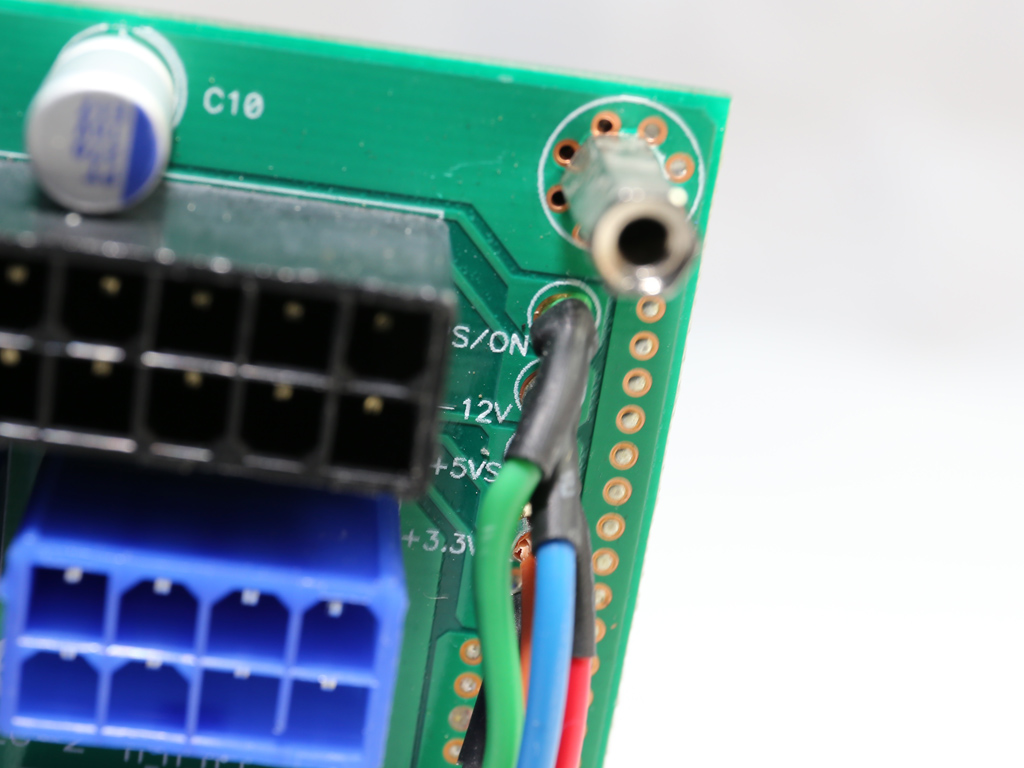
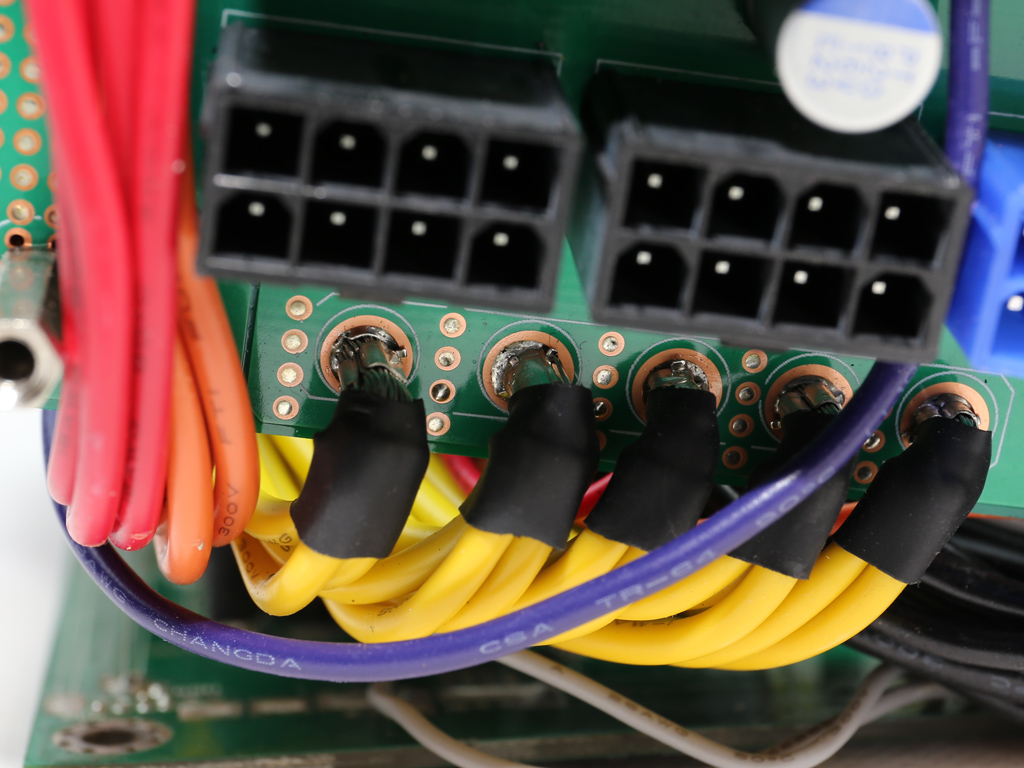
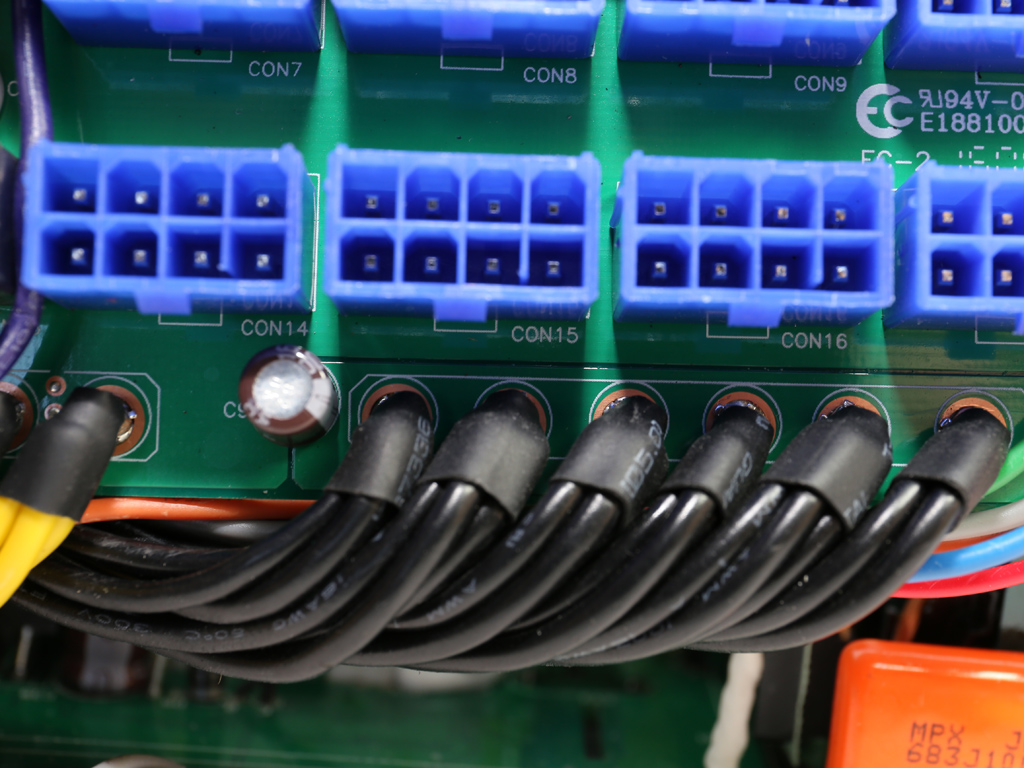
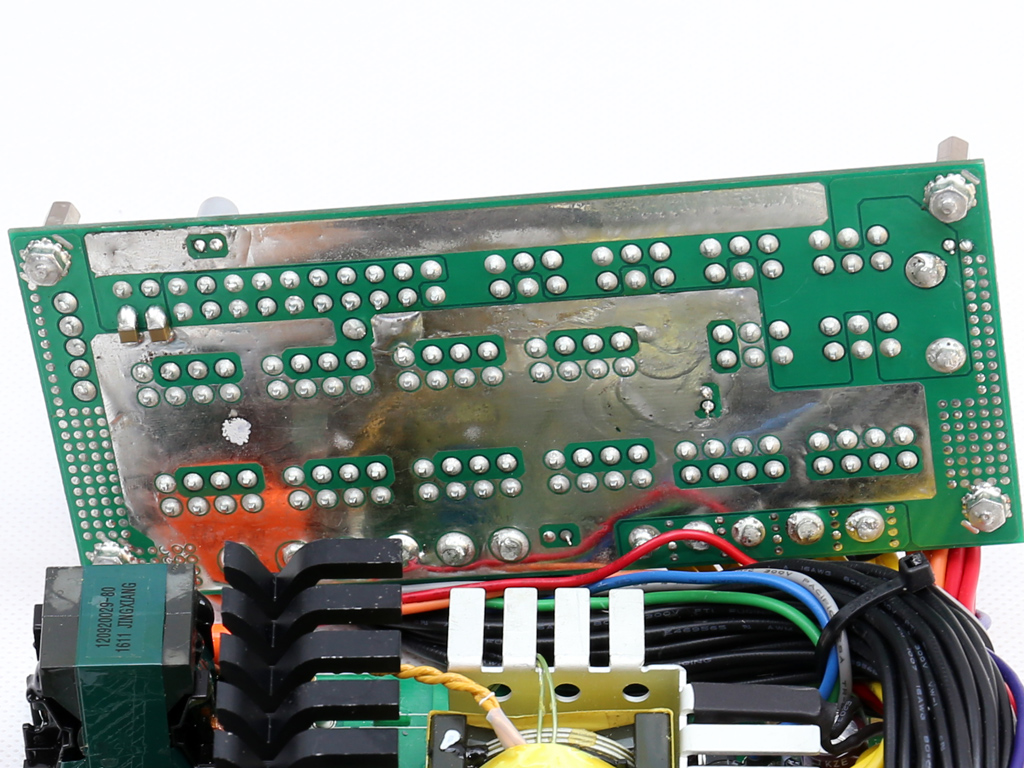
On the front side of the modular panel, several polymer caps and a Chemi-Con KMA electrolytic one filter the rails. The KMA caps have a limited lifetime of 1000 hours at 105°C, however this is a low-stress area.
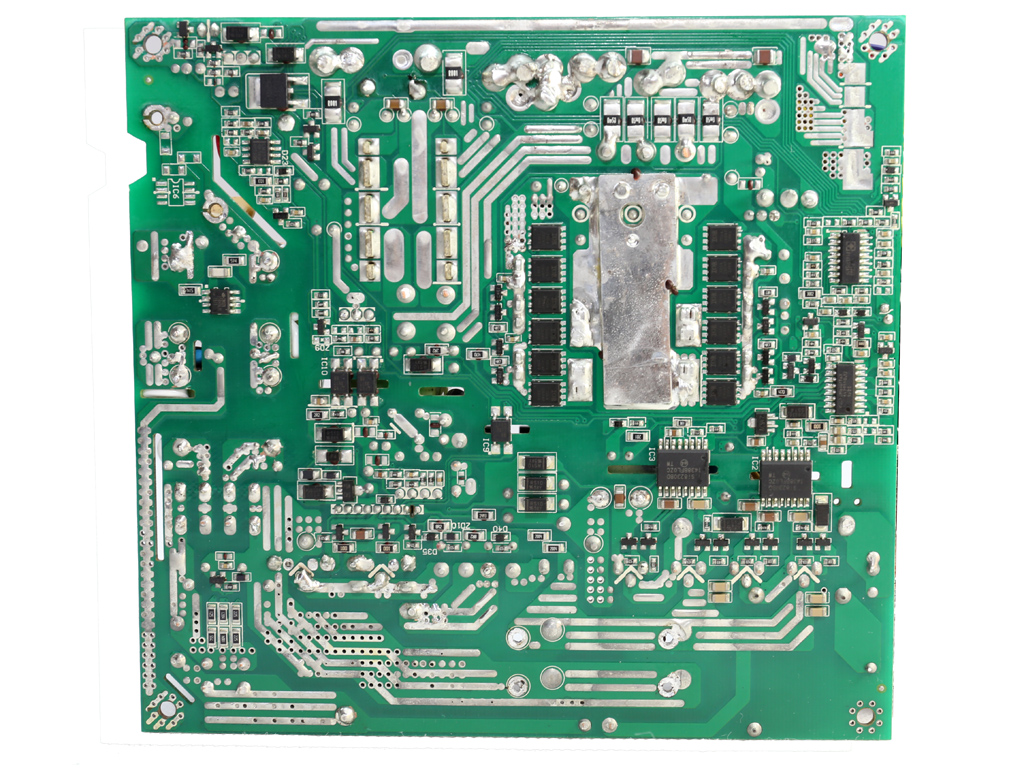
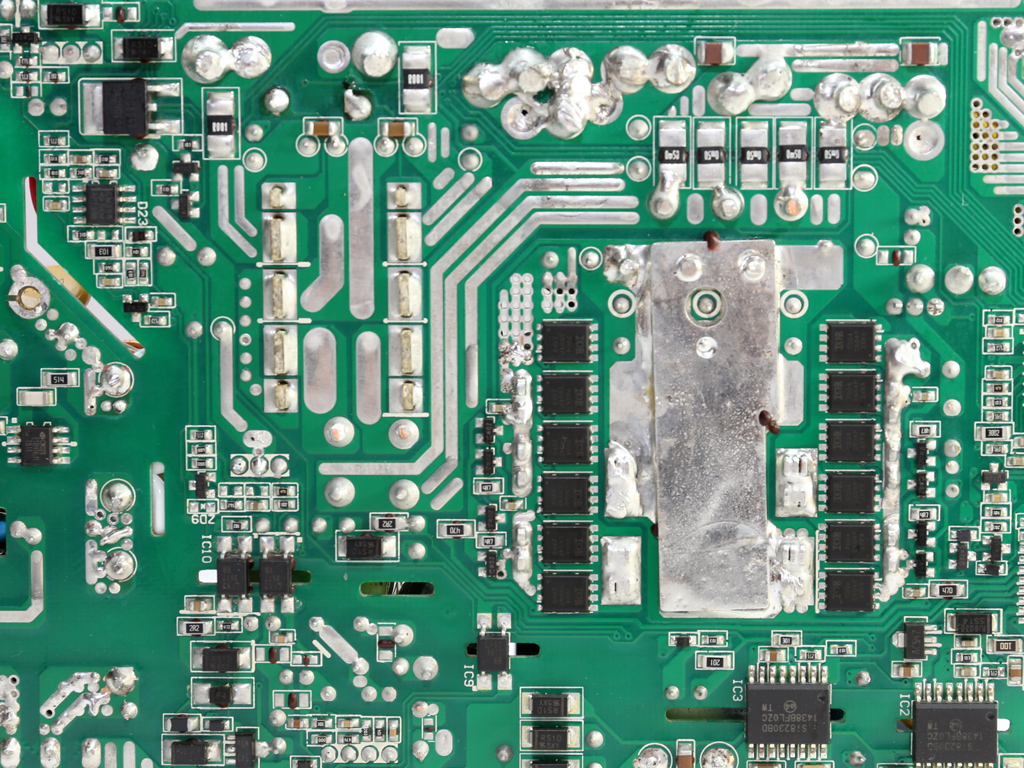
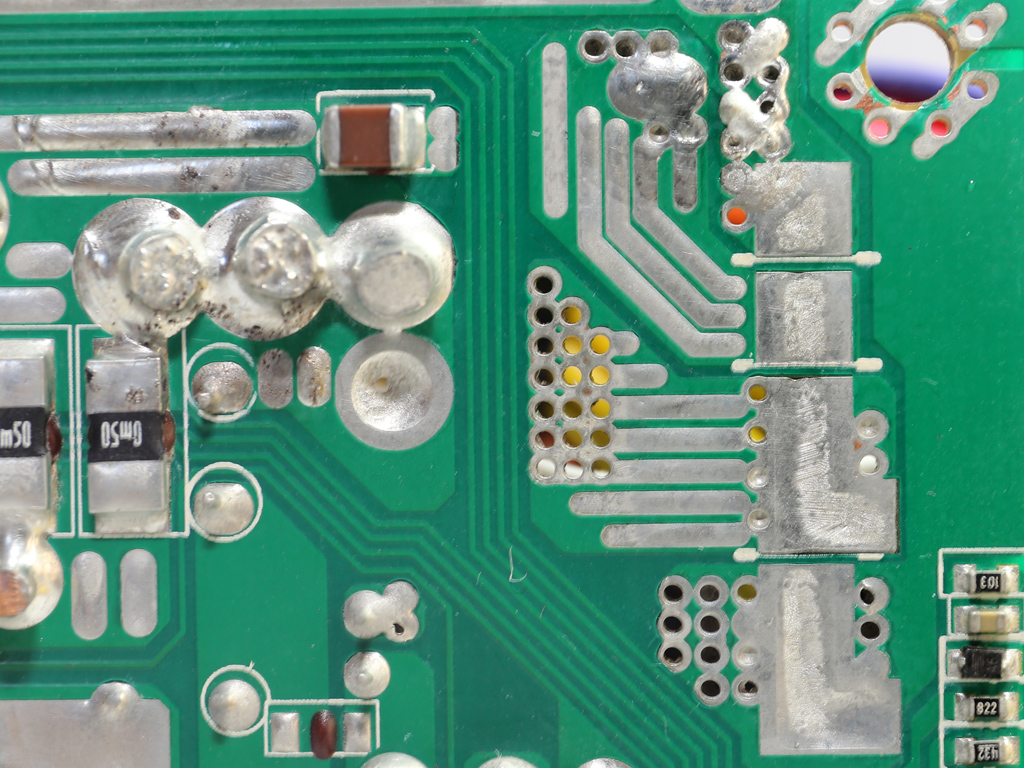
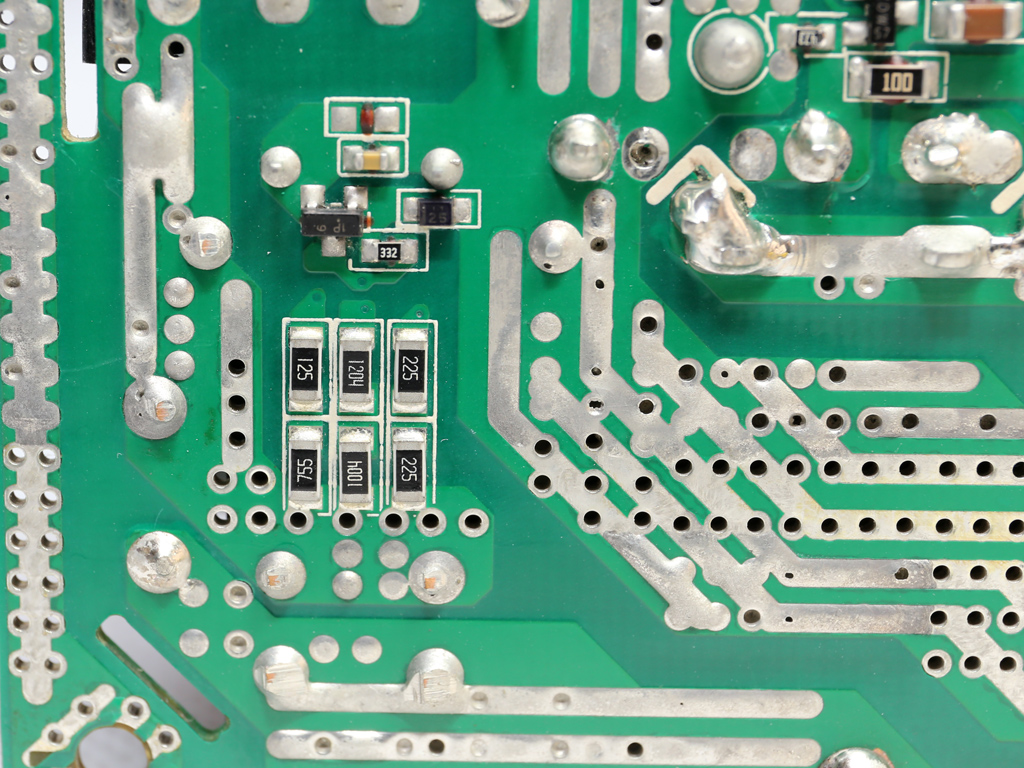
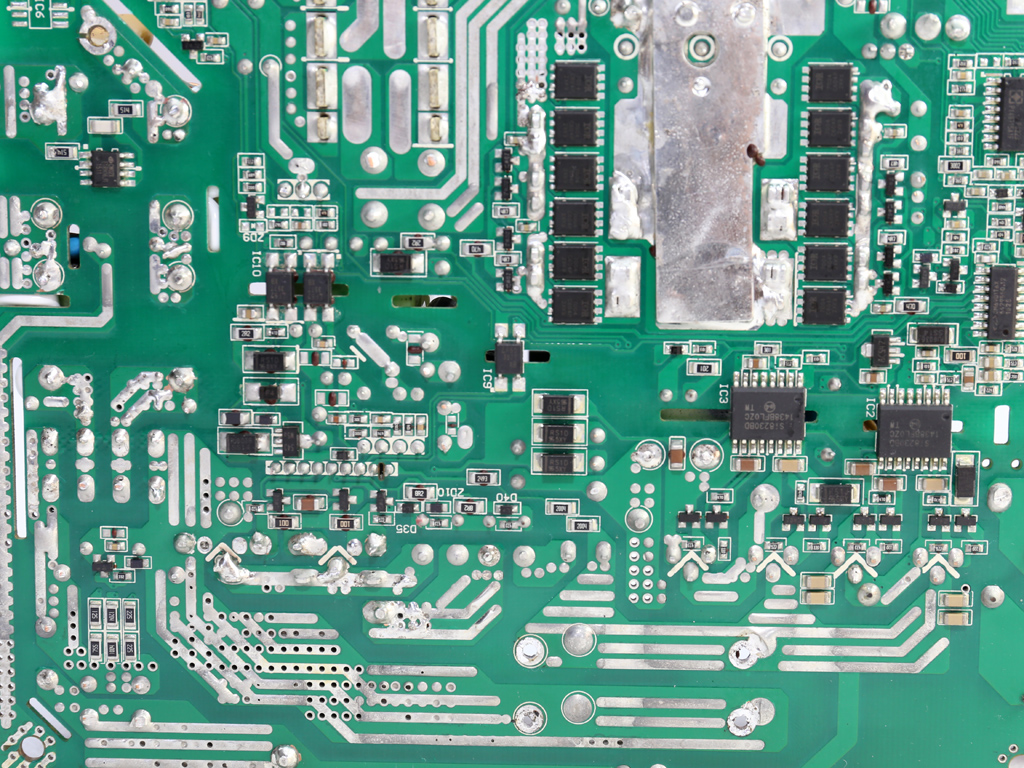
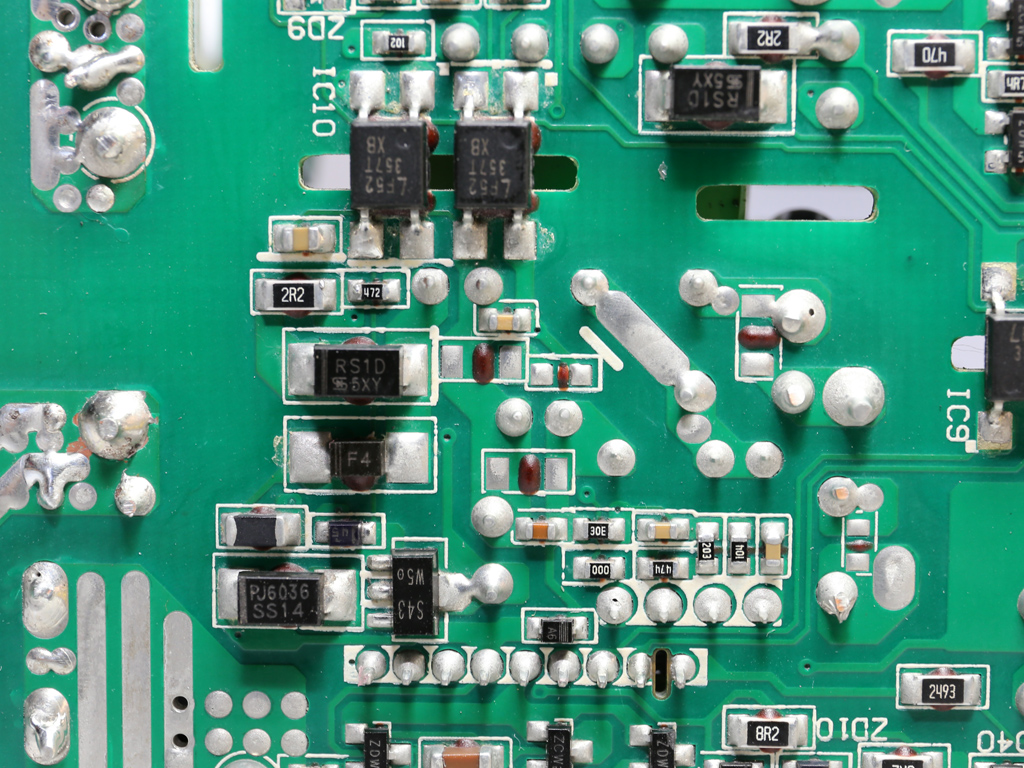
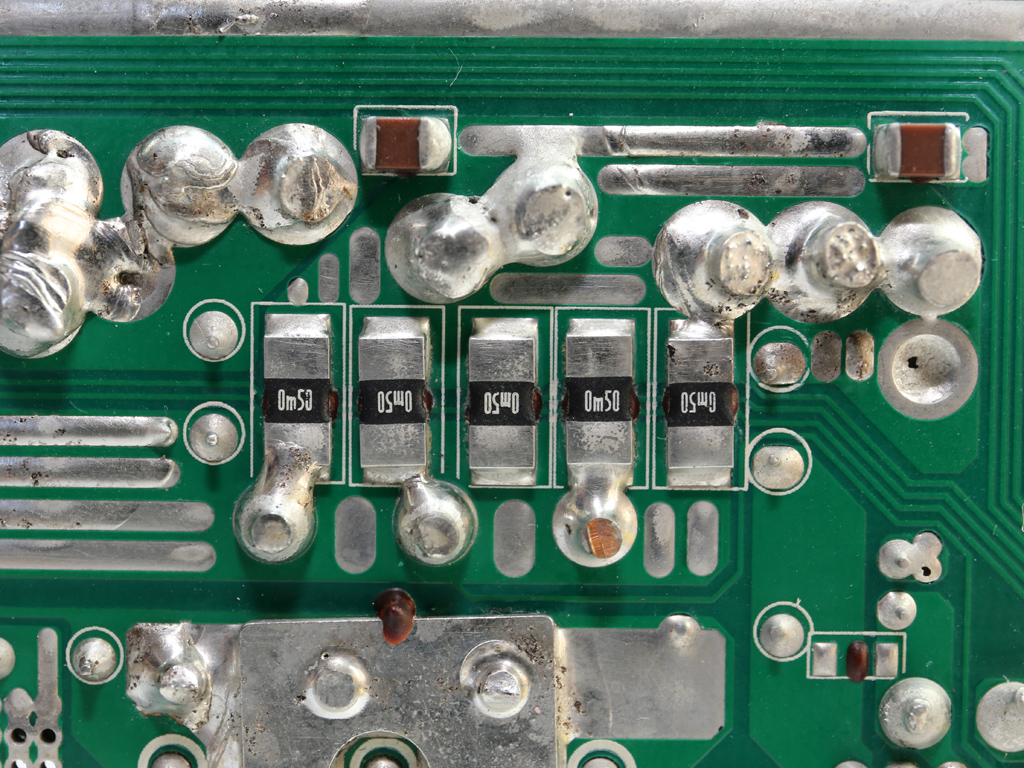
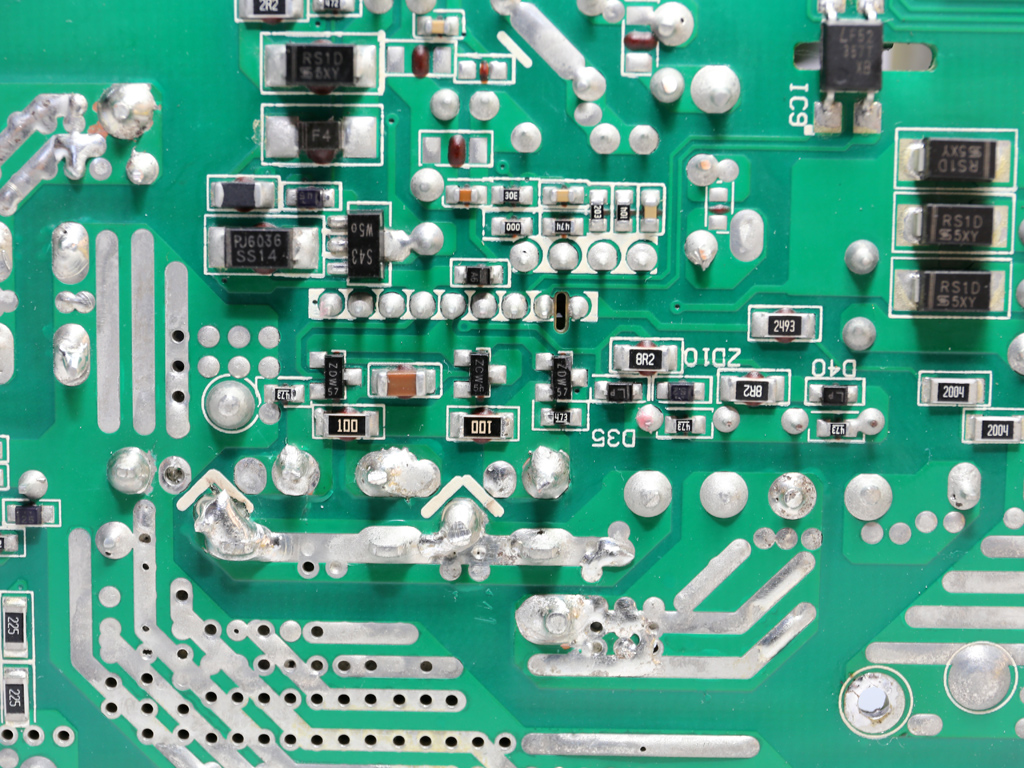
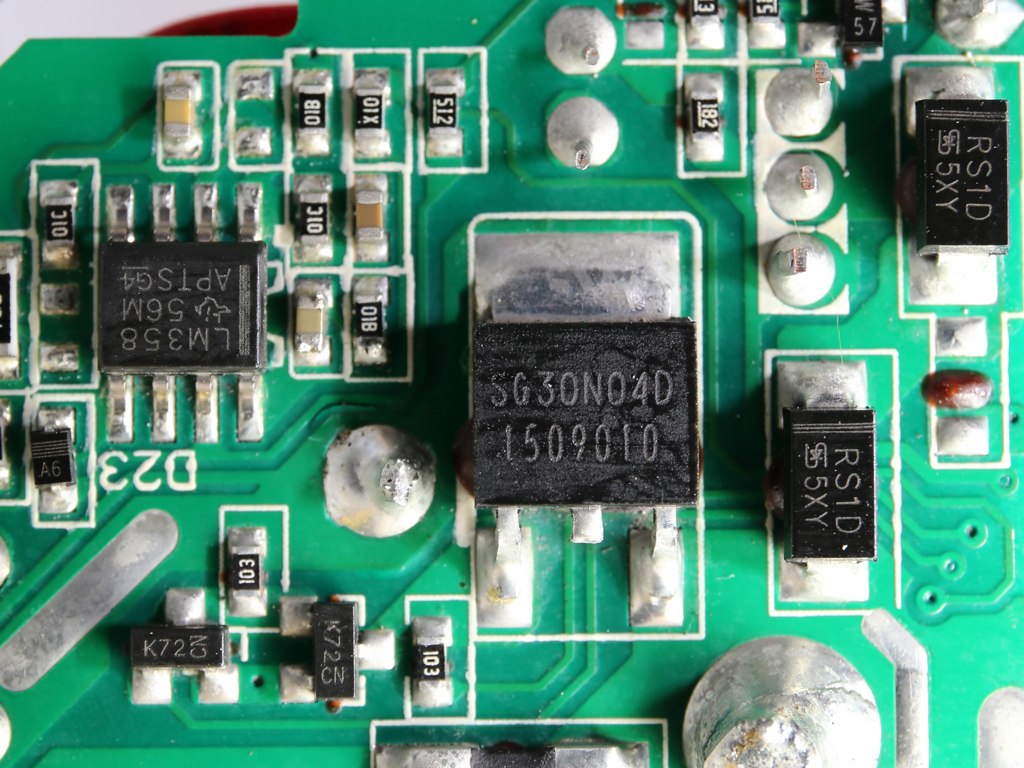
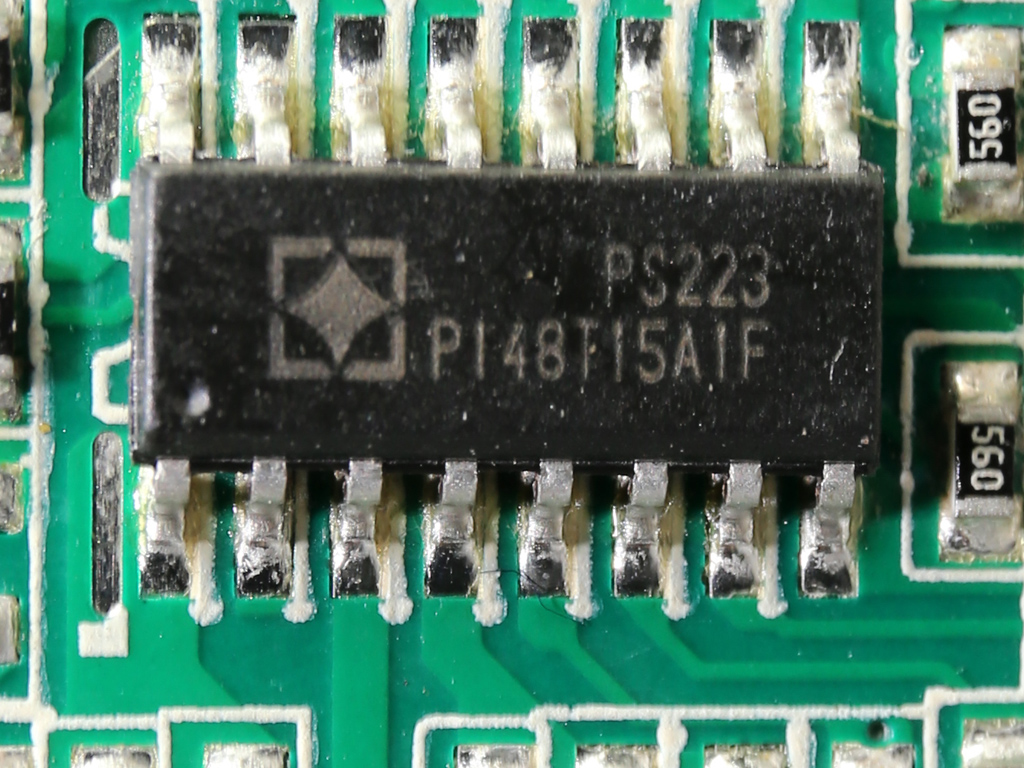
The soldering quality is good, as it is in most Enhance platforms. We meet the supervisor IC on this side of the board, a SITI PS223, which is among the few with support for OTP out of the box, along with a SG30N04D FET that most likely feeds the 5VSB rail from the 5V one.
The 140mm-diameter fan is provided by Hong-Hua. Its model number is HA1425H12B-Z and it uses a double-ball bearing, so it should last a long time. Its only problem looks to be an aggressive fan profile that makes it spin very fast in environments over 40°C ambient, generating lots of noise. Thankfully, under light loads, the fan is deactivated by a passive mode.
Current page: A Look Inside And Component Analysis
Prev Page Packaging, Contents, Exterior, And Cabling Next Page Load Regulation, Hold-Up Time, And Inrush Current
Aris Mpitziopoulos is a contributing editor at Tom's Hardware, covering PSUs.
-
powernod Wow!! Extremely impressed with Aris's more thorough "Advanced Transient Tests" !!Reply
Great to see a reviewer who never stops evolving his work!!
Amazing work Aris !!! -
Metteec Nice review, Aris. $233 is a lot to spend on a PSU. You can get a Corsair HX1200i for $210 after mail in rebate, which is a well-regarded PSU with a 7-year warranty.Reply -
jeffunit "...and as you can see, the glossy silver surface makes taking pictures difficult."Reply
It sure does, because the pictures have the exterior looking like matte black.
